Studying medicine in China offers a unique blend of traditional medical practices and modern advancements, attracting students globally. Renowned for its affordable tuition fees and world-class medical education, China boasts numerous prestigious medical universities with state-of-the-art facilities and experienced faculty. Programs are often taught in English, accommodating international students. Beyond academics, students gain exposure to diverse clinical settings, enhancing their practical skills and cultural competency. China's rich medical history provides a profound backdrop for learning, offering insights into traditional Chinese medicine alongside contemporary medical practices.

China, the world's most populous country, boasts a rich tapestry of history, culture, and innovation. With a civilization dating back millennia, China has contributed significantly to global civilization through inventions like paper, gunpowder, and the compass. Its vast landscapes range from the towering peaks of the Himalayas to the bustling metropolises of Beijing and Shanghai. Economically, China has undergone rapid growth, transforming into a global economic powerhouse and the world's second-largest economy. This growth has been accompanied by infrastructural marvels such as the high-speed rail network and futuristic skyscrapers. As China continues to evolve, it remains a focal point of global attention, influencing geopolitics, economics, and culture on a grand scale.


| Intake | May – October |
|---|---|
| Score Required in 10+2 | 50% in PCB |
| NEET Requirement | Yes, NEET Qualified |
| Fees Structure | 3000 – 6000 USD Per Year |
| Hostel & Mess | 100-120 USD Per Month |
| Duration | 5+1 Years (Including Internship) |
| Medium of Instruction | English |
| Top Medical University | ZHEJIANG UNIVERSITY WUHAN UNIVERSITY CHINA MEDICAL UNIVERSITY |
| Recognition | NMC, FAIMER, WFME, WHO, ECFMG, AMSE |

Fudan University, located in Shanghai, China, stands as one of the country's most prestigious institutions of higher learning. With a rich history dating back to its founding in 1905, Fudan has evolved into a comprehensive research university renowned for its academic excellence, global outlook, and commitment to innovation.
Fudan University's origins can be traced back to the establishment of Fudan Public School in 1905, during a transformative period in China's history. Initially founded through the efforts of the renowned educator Ma Xiangbo, the school aimed to promote modern education and intellectual discourse in Shanghai. Over the years, it underwent several transformations and expansions, eventually evolving into Fudan University in 1952, following the merger of various institutions.
Fudan University has emerged as a leading academic institution both within China and internationally. It offers a diverse range of undergraduate, graduate, and doctoral programs across medical studies. The university's commitment to academic medical excellence is reflected in its world-class medical faculty, rigorous curriculum, and cutting-edge medical research facilities.
Fudan's academic programs are designed to foster critical thinking, creativity, and interdisciplinary collaboration among students. The university emphasizes holistic education, encouraging students to explore diverse perspectives, engage in hands-on learning experiences, and develop leadership skills that will prepare them for success in an increasingly interconnected world.
As a leading medical institution, Fudan University maintains 800 bed teaching hospital alongside close ties with affiliated hospitals and healthcare institutions where students receive clinical training and practical experience under the guidance of experienced medical professionals. These clinical affiliations provide students with exposure to a wide range of medical conditions, treatment modalities, and patient populations, preparing them for the challenges of professional practice in diverse healthcare settings.
Research and innovation lie at the heart of Fudan University's mission. The university is home to numerous medical research institutes, centres, and laboratories dedicated to advancing knowledge and addressing pressing global challenges.
Fudan University actively promotes interdisciplinary medical research collaboration, both within the university and with leading institutions worldwide. Through partnerships, joint initiatives, and international exchange programs, Fudan fosters a vibrant research ecosystem that transcends disciplinary boundaries and drives innovation across diverse fields of inquiry.
Fudan University has embraced a global outlook, cultivating partnerships and collaborations with several medical institutions, organizations, and medical scholars from around the world. The university's commitment to internationalization is reflected in its diverse student body, faculty exchanges, joint research projects, and academic conferences that promote cross-cultural dialogue and understanding.
Fudan's global engagement extends beyond academia to encompass various aspects of societal engagement, cultural exchange, and international cooperation. Through initiatives such as study abroad programs, international student exchanges, and cultural events, Fudan University fosters a dynamic and inclusive campus environment that celebrates diversity and fosters mutual respect among individuals from different backgrounds and cultures.
Fudan University's impact and influence extend far beyond the confines of its campus. As one of China's leading academic institutions, Fudan plays a pivotal role in shaping the country's intellectual landscape, driving innovation, and contributing to national development priorities. Its alumni, faculty, and research outputs have made significant contributions to various fields, ranging from academia and business to government and civil society.
Moreover, Fudan's global reach and reputation as a center of academic excellence have positioned it as a key player in the international higher education landscape. Through partnerships, collaborations, and knowledge exchange initiatives, Fudan University continues to make meaningful contributions to global education, research, and innovation, fostering greater understanding and cooperation among nations and cultures.
Fudan University stands as a beacon of academic excellence, research innovation, and global engagement in China and beyond. With a proud history, a commitment to excellence, and a dedication to serving society, Fudan embodies the spirit of intellectual curiosity, innovation, and collaboration that defines the modern university. As it continues to evolve and adapt to the changing needs of the 21st century, Fudan University remains steadfast in its mission to inspire, educate, and empower future generations of leaders, thinkers, and innovators.
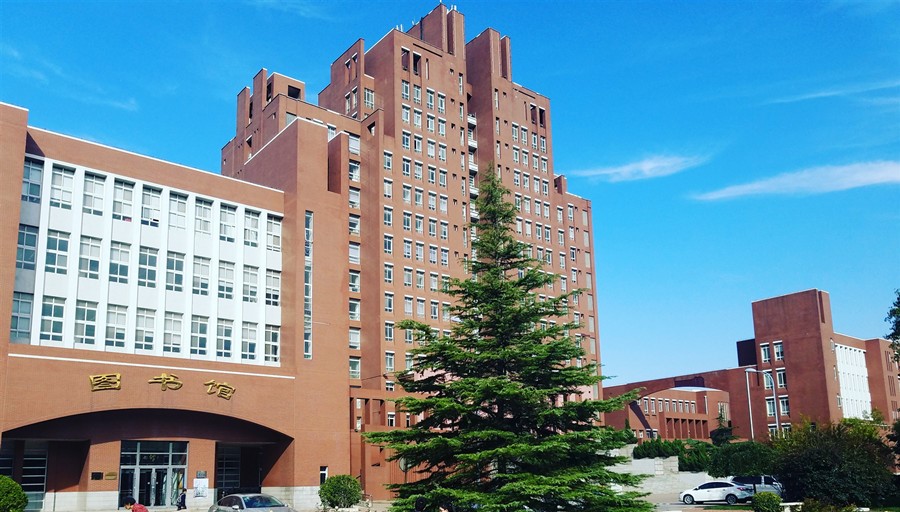
Tianjin Medical University (TMU) is one of China's premier medical institutions, renowned for its commitment to excellence in medical education, research, and healthcare services. Established in 1951, TMU has evolved into a comprehensive university with a focus on medicine, incorporating disciplines such as pharmacy, nursing, public health, and medical technology.
Tianjin Medical University traces its roots to the Tianjin Health School, founded in 1951. Over the decades, it expanded its scope and became Tianjin Medical College in 1978. In 1994, it attained university status and adopted its present name, Tianjin Medical University. Throughout its history, TMU has upheld a tradition of innovation, academic rigor, and dedication to advancing medical science and healthcare practices.
Tianjin Medical University offers a wide array of undergraduate, graduate, and doctoral programs in various medical and healthcare fields. These include medicine, stomatology (dentistry), nursing, pharmacy, public health, medical imaging, medical laboratory technology, and traditional Chinese medicine. The university is committed to providing high-quality education that equips students with the knowledge, skills, and ethical principles necessary for professional practice in their respective fields.
Tianjin Medical University boasts a distinguished faculty comprising experienced educators, researchers, and medical professionals who are recognized for their contributions to their respective fields. The university's research endeavors encompass basic and applied research across a spectrum of medical disciplines, including but not limited to cancer research, infectious diseases, neuroscience, cardiovascular health, and traditional Chinese medicine. TMU encourages interdisciplinary collaboration and partnerships with domestic and international institutions to foster innovation and address pressing healthcare challenges.
Recognizing the importance of global cooperation in advancing medical research and education, TMU actively engages in international collaboration and exchange programs. The university has established partnerships with leading academic institutions, research centers, and healthcare organizations worldwide, facilitating student exchanges, joint research projects, and academic conferences. These collaborations enrich the academic experience, promote cultural exchange, and facilitate the exchange of knowledge and best practices in healthcare delivery.
Tianjin Medical University campus is located in Tianjin, a vibrant metropolis in northern China known for its rich cultural heritage and economic dynamism. The university campus features state-of-the-art teaching facilities, research laboratories, and healthcare centers equipped with the latest technology and equipment. The campus provides a conducive environment for learning, research, and personal development, with modern amenities, recreational facilities, and student support services catering to the diverse needs of its student body.
As a leading medical institution, TMU maintains 15000 bed with 29 teaching hospitals alongside close ties with affiliated hospitals and healthcare institutions where students receive clinical training and practical experience under the guidance of experienced medical professionals. These clinical affiliations provide students with exposure to a wide range of medical conditions, treatment modalities, and patient populations, preparing them for the challenges of professional practice in diverse healthcare settings.
Tianjin Medical University has remained steadfast in its commitment to excellence, innovation, and service to society. By nurturing a culture of academic excellence, scientific inquiry, and compassionate care, TMU continues to make significant contributions to medical education, research, and healthcare delivery, both domestically and internationally. As China's healthcare landscape evolves and new challenges emerge, TMU remains dedicated to its mission of advancing medical science, training future generations of healthcare professionals, and improving the health and well-being of communities worldwide.
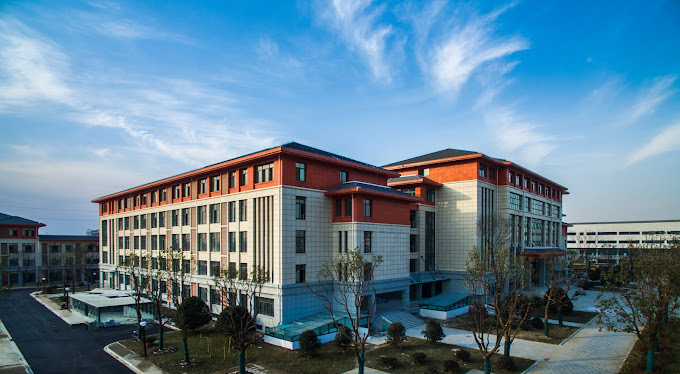
Yangzhou University is a prestigious institution of higher learning located in Yangzhou, Jiangsu Province, China. With a rich history, a commitment to academic excellence, and a diverse range of programs, Yangzhou University has established itself as a leading educational institution in China and beyond.
Yangzhou University traces its roots back to the GuoZiJian, which was established during the Sui Dynasty (581–618 AD) in Yangzhou, an ancient city renowned for its cultural and educational significance in Chinese history. Over time, the educational institution evolved, and in 1992, Yangzhou University was officially established through the merger of several local colleges and universities.
Yangzhou University offers a wide range of undergraduate, graduate, and doctoral programs in Medicine and Health Sciences: With a reputable medical school and affiliated hospitals, Yangzhou University is renowned for its medical education and research. The university's medical programs produce skilled healthcare professionals who serve both domestically and internationally.
Yangzhou University is committed to advancing knowledge through cutting-edge research and innovation, modern lab and ultra-modern hospital. It has established research institutes, laboratories, and centres of excellence in various disciplines to facilitate interdisciplinary collaboration and tackle complex global challenges.
The university encourages faculty and students to engage in research projects that address societal needs and contribute to scientific advancement. Research areas span from basic sciences to applied research, with a focus on emerging technologies, sustainable development, and addressing global health concerns.
Yangzhou University also fosters partnerships with industry, government agencies, and international institutions to leverage resources and expertise for collaborative research initiatives. These partnerships enhance the university's research capabilities and create opportunities for technology transfer and commercialization.
Recognizing the importance of global perspectives in education and research, Yangzhou University actively promotes internationalization efforts. It collaborates with universities and research institutions worldwide to exchange knowledge, foster cultural understanding, and promote academic cooperation.
The university offers various international programs, including student exchange programs, joint degree programs, and collaborative research projects. These initiatives provide students and faculty with opportunities to gain international experience, broaden their horizons, and develop cross-cultural competencies.
Yangzhou University also attracts a diverse student body and faculty from different countries, creating a multicultural environment that enriches the learning experience and promotes global citizenship.
The campus of Yangzhou University is situated in a picturesque setting, with modern facilities, state-of-the-art laboratories, libraries, and recreational amenities. The university provides a vibrant and supportive learning environment where students can pursue their academic goals, participate in extracurricular activities, and engage in community service.
Accommodation options include on-campus dormitories equipped with essential amenities, creating a comfortable and convenient living environment for students.
Yangzhou University is a distinguished institution committed to academic excellence, research innovation, and global engagement. With its rich history, diverse academic programs, and vibrant campus life, Yangzhou University continues to inspire and empower generations of students, scholars, and researchers to make meaningful contributions to society and the world. As a beacon of learning and discovery, Yangzhou University remains at the forefront of higher education in China and remains dedicated to shaping the future through education and research.
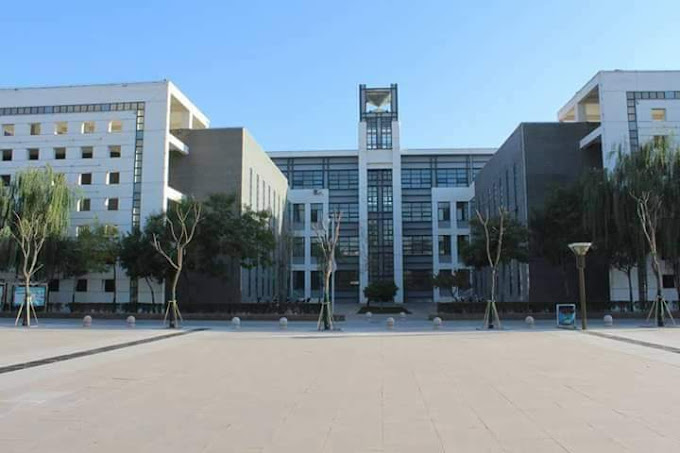
Ningxia Medical University (NXMU), located in Yinchuan, Ningxia, China, is a prominent institution of higher learning dedicated to medical education, research, and healthcare services. Founded in 1958, NXMU has evolved into a comprehensive medical university with a focus on cultivating medical professionals, advancing medical research, and providing healthcare solutions to communities.
Established as Ningxia Medical Vocational School in 1958, Ningxia Medical University initially offered programs in basic medical sciences and clinical medicine. Over the years, it has undergone several transformations and expansions, ultimately achieving university status in 2008. Since then, Ningxia Medical University has continuously expanded its academic programs, research endeavors, and infrastructure to meet the evolving demands of healthcare and medical education.
Ningxia Medical University offers a wide range of undergraduate, graduate, and postgraduate programs in various disciplines of medicine, dentistry, nursing, pharmacy, public health, and medical technology. These programs are designed to provide students with comprehensive theoretical knowledge, practical skills, and clinical experience necessary for their professional careers in the healthcare sector. The university emphasizes interdisciplinary learning, research integration, and hands-on training to prepare students for the complexities of modern healthcare practice.
Ningxia Medical University boasts a distinguished faculty comprising experienced medical professionals, researchers, and scholars dedicated to advancing knowledge in biomedical sciences, clinical medicine, public health, and related fields. The university encourages collaborative research initiatives, interdisciplinary studies, and international partnerships to address global health challenges, promote innovation, and enhance healthcare delivery systems. Faculty members actively engage in research projects, scholarly publications, and scientific conferences to contribute to the advancement of medical science and technology.
Ningxia Medical University is equipped with state-of-the-art facilities, modern laboratories, teaching hospitals, and research centres to support academic activities, clinical training, and scientific research. The university's infrastructure includes advanced medical equipment, simulation labs, digital libraries, and information technology resources to facilitate learning, research, and healthcare services. Additionally, Ningxia Medical University collaborates with affiliated hospitals and have more than 3000+ bed hospital to provide students with practical exposure, clinical rotations, and internship opportunities.
Ningxia Medical University actively promotes international collaboration, academic exchange programs, and cultural partnerships to foster global perspectives, cross-cultural understanding, and academic excellence. The university collaborates with renowned institutions, universities, and organizations worldwide to facilitate student exchange, faculty mobility, joint research projects, and academic conferences. Through international cooperation, Ningxia Medical University strives to enrich the educational experience, promote scientific collaboration, and address global health priorities.
Ningxia Medical University continues to pursue excellence in medical education, research, and healthcare innovation to meet the evolving needs of society. The university aims to enhance its academic programs, expand research capabilities, and strengthen international partnerships to achieve global recognition and impact in the field of healthcare. Ningxia Medical University remains committed to nurturing competent healthcare professionals, advancing medical knowledge, and improving healthcare outcomes for the betterment of humanity.
Ningxia Medical University stands as a beacon of excellence in medical education, research, and healthcare services, embodying a commitment to academic integrity, professional excellence, and social responsibility. With its rich history, diverse academic programs, distinguished faculty, and state-of-the-art facilities, NXMU continues to inspire generations of students, researchers, and healthcare professionals to make meaningful contributions to the advancement of medical science and the well-being of society.
Shihezi University, located in Shihezi City, Xinjiang, China, is a renowned institution of higher learning known for its comprehensive academic programs, rich cultural heritage, and commitment to excellence in education. Established in 1996, it has rapidly emerged as a leading educational institution in China, particularly in the fields of agriculture, engineering, medicine, and various other disciplines. With a sprawling campus, state-of-the-art facilities, and a diverse student body, Shihezi University continues to play a pivotal role in shaping the future of education and research in China.
Shihezi University traces its roots to the early 1950s when the Chinese government initiated the development of the Xinjiang Production and Construction Corps (XPCC), an organization aimed at promoting economic development and stability in Xinjiang, an autonomous region in northwestern China. As part of its mission, the XPCC established a number of educational institutions, including Shihezi University, to meet the growing demand for skilled professionals and intellectuals in the region.
Shihezi University offers a wide range of undergraduate, graduate, and doctoral programs across various discipline in medical studies. The university is renowned for its strong emphasis on medical sciences and has established itself as a pioneer in medicall research and innovation. Its medical programs are highly regarded both domestically and internationally, attracting students from diverse backgrounds seeking high-quality education and training.
The university boasts a team of distinguished faculty members who are experts in their respective fields and are actively engaged in cutting-edge research and scholarship. With state-of-the-art laboratories, research centers, and collaborative partnerships with leading institutions and industry partners, Shihezi University is at the forefront of scientific discovery and technological innovation. Its research endeavors span a wide range of areas in medical sciences, contributing significantly to the advancement of medical knowledge and addressing key medical challenges.
In recent years, Shihezi University has been actively promoting internationalization and global engagement, seeking to enhance its academic reputation and foster international collaboration and exchange in medicine studies. The university has established partnerships and collaborative agreements with leading universities and institutions around the world, facilitating student exchange programs, joint research projects, and faculty mobility initiatives. Through its international programs and initiatives, Shihezi University aims to provide students with global perspectives and cross-cultural experiences, preparing them to thrive in an increasingly interconnected and diverse world.
Shihezi University stands as a beacon of academic excellence, innovation, and social responsibility, embodying the rich cultural heritage and spirit of progress that define the educational landscape of modern China. With its unwavering commitment to quality education, research excellence, and community service, Shihezi University continues to inspire and empower generations of students, scholars, and leaders to shape a brighter future for themselves and society at large.

Guangxi Medical University (GXMU), located in Nanning, the capital city of Guangxi Province in southern China, stands as one of the esteemed institutions for medical education in the country. Established in 1934, the university has evolved into a prominent center for medical research, education, and healthcare services, catering to the needs of the region and beyond. With its rich history, academic excellence, and commitment to innovation, Guangxi Medical University has emerged as a beacon of healthcare education and advancement in China.
The roots of Guangxi Medical University trace back to the early 20th century when it was founded as the Guangxi Provincial School of Health. Over the decades, the institution underwent several transformations, expanding its scope and academic offerings. In 1958, it was officially renamed Guangxi Medical College and later attained university status in 1993, becoming Guangxi Medical University.
Guangxi Medical University offers a comprehensive range of undergraduate, graduate, and postgraduate programs in various disciplines of medicine, dentistry, nursing, pharmacology, and public health. The university prides itself on its diverse and interdisciplinary curriculum, designed to equip students with the knowledge, skills, and ethical values necessary for successful careers in healthcare.
The university boasts a highly qualified faculty comprising renowned medical professionals, researchers, and scholars dedicated to advancing medical science and education. With state-of-the-art research facilities and collaborations with leading institutions worldwide, Guangxi Medical University is at the forefront of medical innovation and discovery. Faculty members actively engage in cutting-edge research across diverse areas such as cancer biology, infectious diseases, traditional Chinese medicine, and public health initiatives.
Guangxi Medical University places great emphasis on international collaboration and exchange programs to foster global perspectives and cross-cultural understanding among its students and faculty. Through partnerships with universities and institutions worldwide, the university promotes academic exchange, joint research projects, and student mobility programs, enriching the learning experience and promoting cultural diversity on campus.
The university maintains 3000 bed hospital along with close ties with affiliated hospitals and healthcare institutions, providing students with hands-on clinical training and exposure to real-world medical practices. Through its extensive network of teaching hospitals and medical centres, Gu
angxi Medical University ensures that students receive comprehensive clinical education and practical experience under the guidance of seasoned healthcare professionals.Guangxi Medical University boasts modern infrastructure and state-of-the-art facilities designed to support teaching, research, and clinical activities. The campus features well-equipped laboratories, lecture halls, libraries, and recreational amenities to cater to the diverse needs of students, faculty, and staff. Additionally, the university continually invests in upgrading its facilities and infrastructure to maintain high standards of excellence in medical education and healthcare delivery.
Beyond academics, Guangxi Medical University offers a vibrant campus life with a wide range of extracurricular activities, student clubs, and cultural events. From sports competitions and talent shows to academic conferences and social gatherings, students have ample opportunities to engage with peers, explore their interests, and develop leadership skills outside the classroom.
Guangxi Medical University is accredited by the Ministry of Education of the People's Republic of China and recognized for its commitment to academic excellence, research, and professional ethics. The university's programs adhere to national and international standards, ensuring that graduates meet the highest professional benchmarks and are well-prepared to meet the challenges of modern healthcare practice.
Guangxi Medical University stands as a premier institution for medical education and research in China, renowned for its academic excellence, innovative research, and commitment to healthcare excellence. With its rich history, diverse academic programs, world-class faculty, and state-of-the-art facilities, the university continues to inspire future generations of healthcare professionals and contribute to the advancement of medical science and public health both domestically and internationally. As it looks towards the future, Guangxi Medical University remains dedicated to its mission of nurturing compassionate, competent, and socially responsible healthcare professionals who will make a meaningful difference in the lives of individuals and communities worldwide.

Jilin University, situated in Changchun, Jilin Province, China, stands as one of the country's key comprehensive research universities. With a rich history dating back to 1946, Jilin University has evolved into a prestigious institution renowned for its academic excellence, innovative research, and cultural diversity. This institution plays a pivotal role in China's higher education landscape and has garnered international recognition for its contributions to various fields.
Jilin University traces its roots to the creation of various predecessors, including Jilin Provincial University, Norman Bethune University of Medical Sciences, Changchun University of Technology, and Changchun University. These institutions merged in 2000 to form the present-day Jilin University. The university's history intertwines with China's socio-political evolution, reflecting its commitment to education, research, and societal progress.
Jilin University offers a comprehensive range of academic programs spanning undergraduate, graduate, and doctoral levels. Its faculties cover diverse disciplines, including medicine. The university is dedicated to fostering interdisciplinary collaboration and providing students with a well-rounded education that prepares them for global medical challenges.
Research stands at the heart of Jilin University's mission. The university boasts state-of-the-art research facilities and laboratories, enabling medicos and scientists to explore cutting-edge technologies and address pressing societal issues. Research at Jilin University encompasses a wide array of fields, including but not limited to medicine, biomedicine, science, Through collaboration with international partners and industry stakeholders, Jilin University contributes significantly to the advancement of knowledge and technological innovation.
At its core, Jilin University upholds a set of values that guide its academic endeavors and institutional culture. These values include integrity, excellence, innovation, inclusivity, and social responsibility. The university strives to instill these values in its students and faculty, fostering a culture of academic integrity, intellectual curiosity, and ethical leadership.
Like many institutions of higher learning, Jilin University faces numerous challenges in navigating the complexities of modern academia. These challenges may include resource constraints, geopolitical dynamics, technological disruptions, and evolving educational paradigms. However, amidst these challenges lie immense opportunities for growth, innovation, and positive impact. Jilin University remains committed to overcoming obstacles and seizing opportunities to advance its mission of education, research, and service.
Jilin University stands as a beacon of academic excellence, research innovation, and cultural diversity in China and beyond. With a proud history, a commitment to excellence, and a dedication to serving society, Jilin University continues to shape the future of education, science, and technology. As it embarks on its journey forward, Jilin University remains steadfast in its pursuit of knowledge, truth, and societal progress, inspiring generations of students, scholars, and global citizens along the way.
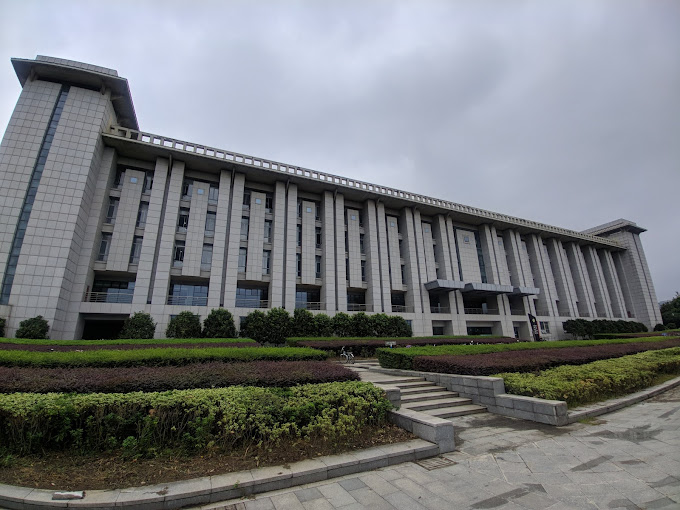
Southeast University (SEU) is one of China's key universities directly under the administration of the Ministry of Education. It is located in Nanjing, the ancient capital of China, which boasts a rich cultural heritage and a long history of academic excellence. Established in 2002, Southeast University has undergone several transformations and restructurings over the years to emerge as one of the country's leading institutions of higher learning.
The roots of Southeast University can be traced back to Sanjiang Normal School, founded in 1902. Over the decades, it underwent several mergers and reorganizations, evolving into the National Central University in 1928 and then Nanjing University in 1949. In 1952, Nanjing University was divided into two separate institutions: Nanjing University and Southeast University. Since then, Southeast University has developed into a comprehensive research university known for its academic excellence and innovation.
Southeast University offers a wide range of undergraduate, graduate, and doctoral programs across various disciplines, including engineering, science, medicine, architecture, humanities, social sciences, and management. The university comprises multiple schools and colleges, each specializing in specific fields of study. These include the School of Architecture, the School of Mechanical Engineering, the School of Electronic Science and Engineering, the School of Medicine, the School of Humanities, and the School of Business, among others.
Research is a cornerstone of Southeast University's mission, and the university has made significant contributions to various fields through its innovative research endeavors. It hosts numerous research institutes and centers dedicated to advancing knowledge and addressing societal challenges. From cutting-edge developments in engineering and technology to breakthroughs in medicine and healthcare, Southeast University is at the forefront of research and innovation in China and beyond.
Southeast University actively fosters international collaboration and exchange programs to promote academic exchange and cooperation with institutions worldwide. It has established partnerships with leading universities and research institutions across the globe, facilitating joint research projects, faculty exchanges, and student mobility programs. These international collaborations enrich the academic experience and contribute to the university's global reputation as a center of excellence in education and research. Also, its Zhongda hospital with the bed capacity of 2499 bed provides best clinical hand experience to its medical students.
Southeast University's commitment to academic excellence and innovation has earned it widespread recognition and accolades both nationally and internationally. The university consistently ranks among the top institutions in China and is recognized for its contributions to research, education, and societal impact. Its programs in engineering, architecture, and medicine are particularly renowned, attracting students and scholars from around the world.
As it looks to the future, Southeast University remains committed to its mission of excellence in education, research, and innovation. With a focus on academic rigor, global engagement, and societal relevance, the university aims to continue advancing knowledge, nurturing talent, and making meaningful contributions to the world. Through its dedication to excellence and innovation, Southeast University aspires to remain at the forefront of higher education and research in China and beyond.
Southeast University stands as a testament to China's commitment to higher education and academic excellence. With its rich history, diverse academic programs, vibrant campus life, and commitment to research and innovation, Southeast University continues to shape the future of education and contribute to global knowledge and understanding. As it moves forward, the university remains steadfast in its pursuit of excellence, leadership, and service to society.
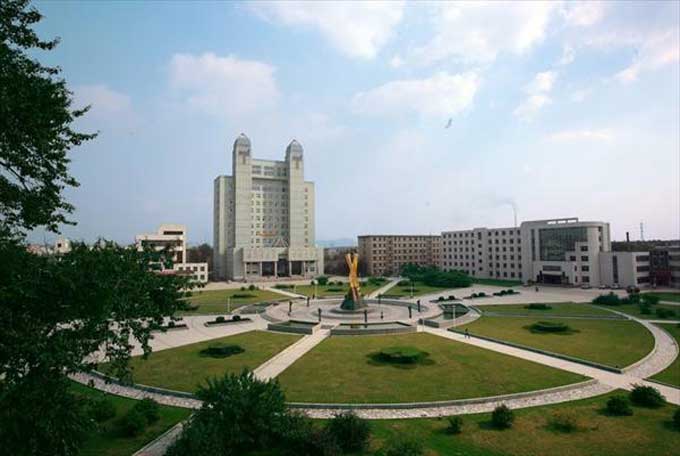
Beihua University is a renowned institution located in Jilin City, Jilin Province, China. Established in 1999, it has a rich history and has evolved into one of China's leading universities. With a commitment to excellence in education, research, and community service, Beihua University has become a prominent center for learning in the region and beyond.
Beihua University traces its roots back to the early 20th century when it was founded as the North Manchurian Advanced Medical School. Over the years, it underwent several transformations and expansions, eventually becoming Beihua University in 1999. Throughout its history, the university has undergone significant developments, adapting to changes in society and education while maintaining its core values of academic integrity and innovation.
Beihua University offers a diverse range of academic programs across multiple disciplines, including medicine. The university is known for its strong emphasis on research and innovation, fostering a dynamic learning environment where students are encouraged to explore new ideas and contribute to the advancement of knowledge in the medical field.
The university's faculty comprises distinguished scholars, researchers, and educators who are experts in their fields. They are committed to providing high-quality education and mentorship to students, equipping them with the knowledge, skills, and expertise needed to succeed in their chosen careers.
The campus of Beihua University is a vibrant and bustling community, where students from diverse backgrounds come together to learn, grow, and engage in various academic, cultural, and extracurricular activities. The university provides modern facilities, labs, ultra modern hospital of 844 bed for inpatient ehich helps medical students to gain hand on experience in clinical rotations, to support student medical learning and enhance their overall experience.
Research is a cornerstone of Beihua University's mission, and the university is committed to advancing knowledge and making meaningful contributions to society through its research endeavors. Faculty members and students are actively engaged in research across medicine addressing critical challenges and exploring new frontiers of knowledge.
The university encourages interdisciplinary collaboration and provides state-of-the-art research facilities and resources to support research initiatives. Through partnerships with industry, government agencies, and other academic institutions, Beihua University seeks to promote innovation, technology transfer, and economic development.
Beihua University is dedicated to promoting internationalization and fostering a global outlook among its students, faculty, and staff. The university actively collaborates with international partners and institutions to promote academic exchange, research collaboration, and cultural understanding.
Through international student exchange programs, study abroad opportunities, and collaborative research projects, Beihua University provides students with the chance to gain valuable international experience, broaden their horizons, and develop a deeper understanding of global issues and perspectives.
Beihua University stands as a beacon of academic excellence, innovation, and community engagement in China and beyond. With its rich history, commitment to excellence, and dedication to serving society, the university continues to be a leader in higher education, shaping the minds of future leaders, scholars, and innovators. As it looks to the future, Beihua University remains steadfast in its mission to empower individuals, enrich communities, and contribute to the advancement of knowledge and human welfare.
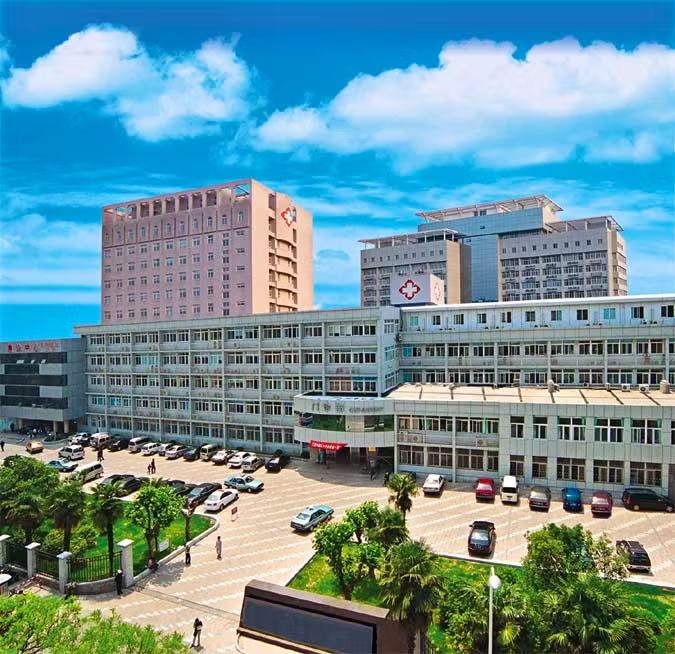
Nantong University (NTU), located in Nantong, Jiangsu Province, China, is a comprehensive public university with a rich history and a commitment to academic excellence, research, and community engagement. Founded in 1912 as Nantong Normal School, it has evolved into a multidisciplinary institution offering undergraduate, graduate, and doctoral programs across various fields of study. This essay will delve into the history, academic programs, research endeavors, campus life, and contributions of Nantong University.
Nantong University traces its roots back to the early 20th century when it was established as Nantong Normal School. Over the years, it underwent several transformations and expansions, eventually attaining university status in 1986. The university's development has been characterized by its commitment to academic excellence, innovation, and societal contribution Nantong University offers a wide array of academic programs across medical studies. The university comprises multiple colleges and departments, each specializing in different fields of study. Undergraduate students can choose from MBBS programme and Postgraduate students can choose from specialization in various fields across medicine studies.
Research is a cornerstone of Nantong University's mission. The university encourages faculty and students to engage in cutting-edge research across medicine. Nantong University prioritizes interdisciplinary collaboration and innovation, aiming to address pressing societal challenges and contribute to scientific advancement.
The university has established research centres and institutes dedicated to fields such as biotechnology, environmental science, advanced materials, and more. These centres serve as hubs for collaboration, fostering partnerships with industry, government agencies, and academic institutions worldwide.
Students at Nantong University have access to state-of-the-art facilities, including libraries, laboratories, sports complexes, and recreational amenities. The university also boasts 2016 bed hospital for best and thrilling clinical experience for its medical students.
Nantong University actively cultivates international partnerships and collaborations to enhance its global presence and promote cross-cultural understanding. The university has forged academic and research partnerships with institutions worldwide, facilitating student and faculty exchanges, joint research projects, and collaborative initiatives.
Through these partnerships, Nantong University aims to foster a global perspective among its students and faculty, preparing them to thrive in an increasingly interconnected world. Internationalization is a key priority for the university, and it continuously seeks opportunities to expand its global network and engage with the international community.
Nantong University stands as a beacon of academic excellence, research innovation, and community engagement in China and beyond. With its rich history, diverse academic programs, vibrant campus life, and commitment to global collaboration, NTU continues to make significant contributions to education, research, and society at large. As it looks to the future, Nantong University remains dedicated to its mission of fostering intellectual curiosity, promoting innovation, and shaping the leaders of tomorrow.
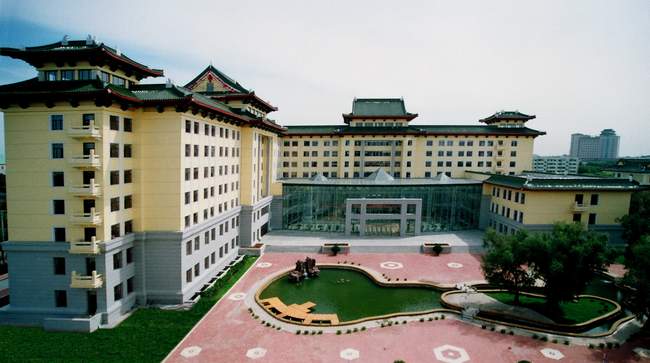
Harbin Medical University (HMU) is one of the premier medical institutions in China, renowned for its excellence in medical education, research, and healthcare services. Established in 1926, HMU has a rich history of over nine decades, marked by significant contributions to medical science and healthcare both nationally and internationally. Situated in Harbin, the capital city of Heilongjiang Province in northeastern China, HMU stands as a beacon of medical innovation and academic achievement.
Harbin Medical University traces its roots back to the inception of Harbin Special Medical School in 1926. Over the years, it evolved and expanded, eventually becoming Harbin Medical University in 1947. Since then, the university has continually grown and adapted to meet the evolving needs of medical education and healthcare in China.
HMU is committed to academic excellence and innovation across various disciplines within the medical field. The university offers a comprehensive range of undergraduate, graduate, and doctoral programs in medicine, dentistry, pharmacy, nursing, public health, and related fields. Its rigorous curriculum and state-of-the-art facilities ensure that students receive world-class education and training, preparing them to become competent healthcare professionals and researchers.
Research is a cornerstone of Harbin Medical University's mission. The university is home to numerous research institutes and centers dedicated to advancing medical knowledge and addressing pressing healthcare challenges. Faculty members and students engage in cutting-edge research across a wide spectrum of fields, including basic medical sciences, clinical medicine, epidemiology, and health policy. From molecular biology to clinical trials, HMU fosters a culture of scientific inquiry and discovery, with many groundbreaking findings published in prestigious international journals.
Harbin Medical University actively collaborates with leading academic institutions, research organizations, and healthcare providers worldwide. Through strategic partnerships and exchange programs, HMU promotes cross-cultural understanding, knowledge exchange, and collaborative research initiatives. International students and scholars enrich the university's academic community, contributing to its global perspective and diversity.
Harbin Medical University is having 2800 bed hospital along with affiliated hospitals and clinics serve as vital hubs for clinical practice, patient care, and medical training. These institutions, including the First, Second, and Third Affiliated Hospitals, provide a broad spectrum of healthcare services, ranging from primary care to specialized treatments and surgeries. Students gain valuable hands-on experience through clinical rotations and internships, working alongside experienced healthcare professionals to diagnose and treat patients effectively.
As a leading medical institution in China, Harbin Medical University upholds the highest standards of excellence in education, research, and healthcare delivery. Its faculty members are distinguished experts and scholars, recognized for their contributions to medical science and clinical practice. The university's commitment to continuous improvement and innovation ensures that it remains at the forefront of medical education and research, shaping the future of healthcare in China and beyond.
Harbin Medical University stands as a beacon of excellence and innovation in medical education, research, and healthcare services. With a rich history spanning nearly a century, HMU continues to uphold its commitment to academic excellence, scientific inquiry, and community engagement. Through its comprehensive programs, groundbreaking research initiatives, and commitment to excellence, Harbin Medical University remains at the forefront of medical education and healthcare in China, making invaluable contributions to the advancement of medical science and the well-being of society.
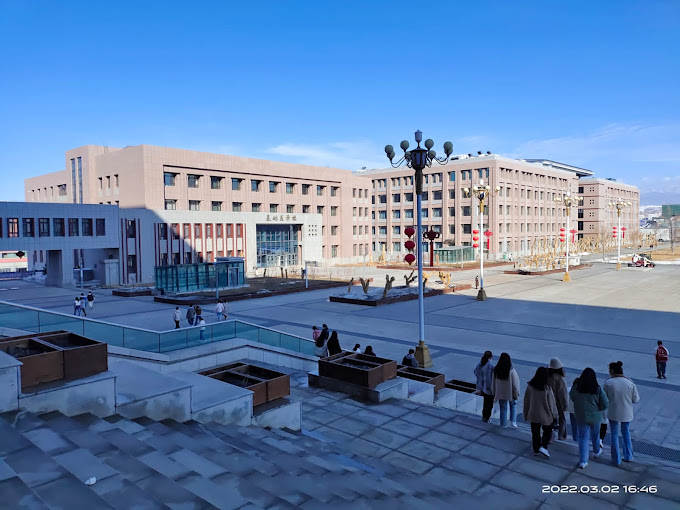
Xinjiang Medical University (XMU) is a prominent institution of higher education situated in Ürümqi, the capital of Xinjiang Uygur Autonomous Region, China. Established in 1956, Xinjiang Medical University has evolved into a comprehensive medical university with a focus on medical education, research, and healthcare services. With its commitment to academic excellence, cultural diversity, and community engagement, Xinjiang Medical University stands as a significant contributor to medical science and healthcare in China and beyond.
Xinjiang Medical University traces its roots back to the early days of the People's Republic of China. Founded in 1956, it was initially named Xinjiang Medical College. Over the decades, the institution underwent several transformations and expansions, eventually attaining university status in 1998, thus becoming Xinjiang Medical Universities.
Xinjiang Medical University offers a wide array of academic programs covering undergraduate, graduate, and postgraduate levels. The university specializes in medicine, with programs in clinical medicine, preventive medicine, stomatology, nursing, pharmacy, medical imaging, and more. Additionally, Xinjiang Medical University has developed interdisciplinary fields such as medical technology, public health, and traditional Chinese medicine, reflecting the diverse needs of healthcare in contemporary society.
The university boasts a highly qualified faculty comprising renowned medical professionals, researchers, and educators. With expertise spanning various medical disciplines, the faculty members at Xinjiang Medical University are actively engaged in cutting-edge research, clinical practice, and academic endeavours. Their contributions to scientific inquiry and medical advancements have earned the university recognition both nationally and internationally. This is not all Xinjiang university also boasts 2970 bed hospital for the best clinical training for its students.
Xinjiang Medical University prioritizes research and innovation, fostering a vibrant research environment conducive to scientific exploration and discovery. Research initiatives encompass a broad spectrum of topics, including clinical trials, biomedical sciences, public health interventions, and traditional medicine. Through collaborations with domestic and international partners, Xinjiang Medical University endeavors to address pressing healthcare challenges and contribute to the global body of medical knowledge.
Xinjiang Medical University is equipped with state-of-the-art facilities and resources to support teaching, research, and healthcare services. The university campus features modern laboratories, libraries, lecture halls, and clinical training centers designed to facilitate comprehensive medical education and training. Additionally, Xinjiang Medical University maintains affiliations with affiliated hospitals and healthcare institutions, providing students with valuable hands-on experience and exposure to real-world medical practice.
Recognizing the importance of international exchange and cooperation, Xinjiang Medical University actively engages with academic institutions, research organizations, and healthcare providers worldwide. The university collaborates on various fronts, including student exchange programs, joint research projects, and faculty exchanges, fostering cross-cultural understanding and facilitating knowledge sharing in the field of medicine.
Xinjiang Medical University stands as a beacon of excellence in medical education, research, and healthcare delivery. With its rich history, academic achievements, and commitment to serving society, the university continues to make significant contributions to medical science, healthcare innovation, and community welfare. Through its dedication to academic excellence, cultural diversity, and social responsibility, Xinjiang Medical University exemplifies the transformative power of education and the profound impact of medicine on human health and well-being.
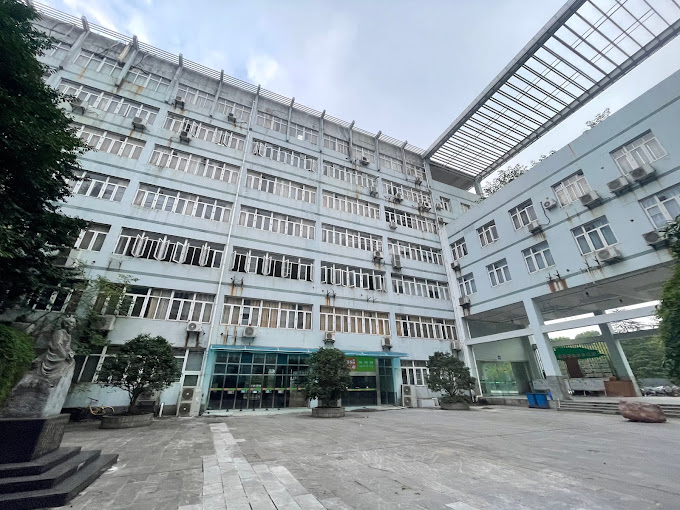
China Three Gorges University (CTGU), located in Yichang City, Hubei Province, China, stands as one of the nation's prominent higher education institutions. With a rich history and a commitment to academic excellence, China Three Gorges University has evolved into a comprehensive university known for its contributions to education, research, and community development.
Established in 2000, China Three Gorges University was formed through the amalgamation of several former institutions. This merger was part of the national strategy to enhance educational quality and address the growing demands of the region's development, particularly in the field of hydropower engineering and related disciplines.
China Three Gorges University boasts a sprawling campus covering over 2000 acres along the banks of the Yangtze River. The campus features modern teaching facilities, advanced laboratories, extensive libraries, and student dormitories. Its picturesque setting amid the Three Gorges region provides an inspiring backdrop for academic pursuits and research endeavours.
As a comprehensive university, China Three Gorges University offers a wide array of undergraduate, postgraduate, and doctoral programs across various disciplines. These include engineering, science, medicine. The university is particularly renowned for its medical studies and its offer various UG & Pg programme in medicine.
China Three Gorges University boasts a distinguished faculty comprised of accomplished scholars, researchers, and medical professionals. Many faculty members have earned national and international recognition for their contributions to medical academia and industry. The university promotes interdisciplinary research in medicine and collaboration, fostering innovation and addressing key challenges areas.
China Three Gorges University offers a comprehensive medical program renowned for its quality education and research opportunities. The medical program at CTGU combines theoretical knowledge with practical training, preparing students to excel in various medical fields. With state-of-the-art facilities and experienced faculty members, CTGU provides students with a conducive learning environment. It also boasts 5500 ned hospital for clinical training to its medical students.
The curriculum of the medical program at CTGU covers a wide range of subjects including anatomy, physiology, pharmacology, pathology, and clinical medicine. Students are exposed to both classroom lectures and hands-on clinical experiences, allowing them to develop strong clinical skills and critical thinking abilities. Additionally, CTGU emphasizes research and innovation, encouraging students to participate in research projects and explore new advancements in medical science.
One of the key highlights of CTGU's medical program is its focus on global perspectives. The university collaborates with renowned medical institutions and universities worldwide, offering students opportunities for international exchanges and collaborations. This exposure not only enriches students' learning experiences but also prepares them to be globally competitive healthcare professionals.
China Three Gorges University actively promotes internationalization through partnerships and collaborations with universities, research institutions, and organizations worldwide. It has established academic exchange programs, joint research initiatives, and student exchange agreements with institutions in countries across Asia, Europe, North America, and beyond. These collaborations enhance cultural exchange, academic mobility, and global perspectives among students and faculty.
China Three Gorges University stands as a beacon of academic excellence, innovation, and social responsibility in China's higher education landscape. With its commitment to fostering talent, advancing knowledge, and serving society, CTGU continues to make significant contributions to the advancement of education, research, and community development in China and beyond. As it continues to evolve and expand its reach, CTGU remains dedicated to its mission of excellence, integrity, and service in the pursuit of higher learning and human advancement
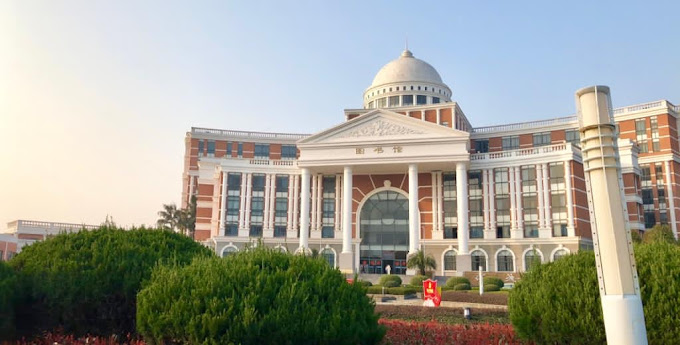
Wenzhou Medical University (WMU), formerly known as Wenzhou Medical College, is a renowned institution of higher education in China. Situated in Wenzhou, Zhejiang Province, the university has a rich history and a commitment to excellence in medical education, research, and healthcare provision.
Established in 1958, Wenzhou Medical University has evolved significantly over the decades. It started as Zhejiang Specialized Medical School and gradually transformed into Wenzhou Medical College in 1958. In 2013, it officially became Wenzhou Medical University, reflecting its growth and expansion.
The university boasts a sprawling campus equipped with modern facilities conducive to learning and research. Its infrastructure includes state-of-the-art laboratories, lecture halls, libraries, and student dormitories. The campus environment is vibrant, fostering academic growth and cultural exchange.
Wenzhou Medical University offers a diverse range of undergraduate, graduate, and doctoral programs across various disciplines in medicine, health sciences, pharmacy, nursing, and allied health fields. The university emphasizes a comprehensive approach to medical education, integrating theoretical knowledge with practical training.
Wenzhou Medical University takes pride in its esteemed faculty comprising experienced educators, researchers, and medical professionals. Many faculty members are renowned experts in their respective fields, contributing to cutting-edge research and scholarly publications. The university encourages interdisciplinary collaboration and innovation to address pressing healthcare challenges.
Recognizing the importance of global engagement, Wenzhou Medical University actively fosters partnerships with renowned institutions worldwide. It promotes international exchanges, joint research projects, and academic cooperation to enhance cross-cultural understanding and knowledge sharing.
Clinical training forms a vital component of the curriculum at Wenzhou Medical University. The university maintains affiliations with prestigious hospitals and healthcare institutions, providing students with hands-on experience under the guidance of seasoned clinicians. However currently the university have 3000 bed hospital. This practical exposure prepares graduates to excel in their professional careers and make meaningful contributions to healthcare practice.
Over the years, Wenzhou Medical University has garnered acclaim for its academic excellence, research achievements, and contributions to healthcare. It consistently ranks among the top medical universities in China and enjoys recognition both nationally and internationally for its outstanding performance in medical education and research.
Wenzhou Medical University stands as a beacon of excellence in medical education, research, and healthcare delivery. With its rich history, commitment to innovation, and dedication to serving humanity, the university continues to inspire and empower future generations of healthcare professionals. Through its unwavering pursuit of excellence, WMU remains at the forefront of medical education and research, shaping the future of healthcare in China and beyond.

Guangzhou Medical University (GMU), located in Guangzhou, China, is a prestigious institution known for its excellence in medical education, research, and healthcare services. Established in 1958, GMU has evolved into a comprehensive university focusing on medical sciences and related disciplines. With a commitment to academic advancement, innovation, and community service, GMU plays a pivotal role in shaping healthcare and medical research both nationally and internationally.
Guangzhou Medical University traces its origins to the former Guangzhou Medical College, which was founded in 1958. Over the decades, it has undergone significant growth and transformation, expanding its academic offerings, research capabilities, and infrastructure. The university has consistently adapted to meet the evolving needs of the healthcare sector and the demands of a changing society.
Guangzhou Medical University offers a wide array of undergraduate, graduate, and doctoral programs in various medical and healthcare disciplines. These include Medicine, Dentistry, Pharmacy, Nursing, Public Health, Medical Laboratory Science, Traditional Chinese Medicine, and more. The university's curriculum emphasizes both theoretical knowledge and practical skills, ensuring that students receive comprehensive training to excel in their chosen fields.
Guangzhou Medical University boasts a talented faculty comprised of distinguished professors, researchers, and healthcare professionals. Many faculty members are renowned experts in their respective fields, actively contributing to scientific advancements, medical breakthroughs, and innovative treatments. The university fosters a culture of research excellence, providing state-of-the-art laboratories, research centers, and collaborative opportunities for faculty and students to engage in cutting-edge research endeavors.
Recognizing the importance of global cooperation in advancing medical education and research, GMU actively fosters international partnerships and collaborations with leading institutions worldwide. Through joint research projects, student exchanges, and academic conferences, the university promotes cross-cultural understanding, knowledge sharing, and collaborative initiatives aimed at addressing global health challenges.
Guangzhou Medical University is affiliated with several prestigious hospitals and healthcare institutions in Guangzhou, apart then having its own 1500 bed hospital providing students with valuable clinical training opportunities and exposure to real-world healthcare settings. These affiliations enable students to apply their knowledge in a clinical context, develop essential clinical skills, and gain firsthand experience in patient care. Additionally, GMU-affiliated hospitals offer a wide range of medical services, serving the healthcare needs of the local community and beyond.
GMU boasts modern facilities and infrastructure designed to support teaching, research, and clinical practice. The university campus features state-of-the-art classrooms, lecture halls, libraries, laboratories, and simulation centers equipped with the latest technology and resources. Additionally, students have access to recreational amenities, student housing, dining facilities, and extracurricular activities, fostering a vibrant campus environment conducive to learning and personal growth.
Guangzhou Medical University provides comprehensive support services to ensure the well-being and success of its students. From academic advising and career counseling to health services and student organizations, the university offers a range of resources and support systems to help students thrive academically, professionally, and personally. Additionally, GMU promotes a diverse and inclusive campus culture that celebrates cultural diversity, fosters mutual respect, and encourages collaboration among students from different backgrounds and nationalities.
As Guangzhou Medical University continues to uphold its commitment to excellence in medical education, research, and healthcare services, it remains poised to make significant contributions to the advancement of global health and medical science. Through continued innovation, collaboration, and dedication to its core values, GMU will play an instrumental role in shaping the future of healthcare and improving the quality of life for people around the world.
Guangzhou Medical University stands as a beacon of academic excellence, research innovation, and community service in the field of medical education and healthcare. With a rich history, a commitment to excellence, and a vision for the future, GMU continues to inspire generations of students, researchers, and healthcare professionals to make meaningful contributions to the advancement of human health and well-being.
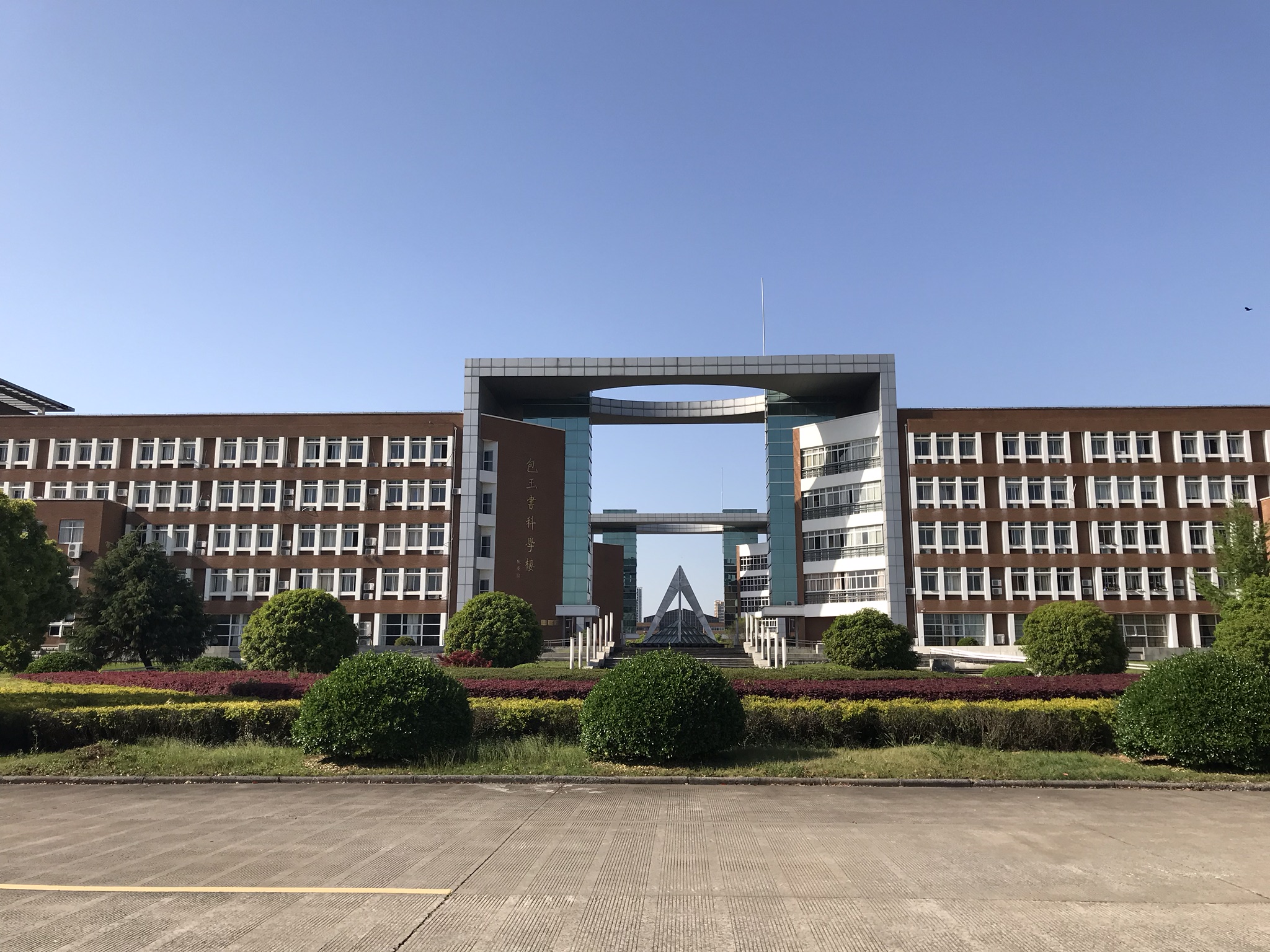
Ningbo University (NBU), located in Ningbo, Zhejiang Province, China, is a comprehensive institution of higher learning with a rich history and a commitment to academic excellence. Founded in 1986, Ningbo University has since grown into a prominent educational establishment known for its diverse academic programs, research endeavours, and contributions to society.
Ningbo University traces its roots back to 1986 when it was established as a merger of three existing institutions: Zhejiang University Ningbo Branch, Ningbo Normal College, and Ningbo Institute of Technology. This amalgamation marked the beginning of a new era in higher education in the region, bringing together resources, expertise, and facilities to form a comprehensive university.
Ningbo University is organized into multiple faculties and schools, offering a wide array of undergraduate, graduate, and doctoral programs across various medical disciplines. It Includes schools of medicine, nursing, and public health.
Ningbo University is committed to fostering research and innovation across various disciplines. The university encourages interdisciplinary collaboration and provides state-of-the-art facilities and resources to support research endeavors. Faculty members actively engage in research projects funded by national and international agencies, contributing to advancements in medical science.
Recognizing the importance of global engagement, Ningbo University actively promotes international cooperation and exchange programs in medical science. The university has established partnerships with numerous medical institutions worldwide, facilitating student and faculty exchanges, joint research projects, and academic collaborations. These international connections enrich the academic experience, promote cultural diversity, and foster a global perspective among students and scholars.
Ningbo University stands as a beacon of academic excellence, innovation, and social responsibility in China's higher education landscape. With its rich history, diverse academic programs, world-class research, and commitment to global engagement, NBU continues to inspire and empower students, scholars, and communities to create a better future for generations to come. As it continues to evolve and grow, Ningbo University remains dedicated to its mission of nurturing talent, advancing knowledge, and making meaningful contributions to society.

Qingdao University, situated in the vibrant coastal city of Qingdao, China, stands as a beacon of medical academic excellence and cultural enrichment. Founded in 1909, its illustrious history and commitment to innovation have propelled it to the forefront of higher education in China and beyond. With a rich tapestry of programs, esteemed faculty, and a diverse student body, Qingdao University embodies the spirit of intellectual curiosity and global engagement.
The roots of Qingdao University trace back to the early 20th century when it was established as Qingdao German Language School. Over the years, it evolved into Qingdao Medical College, laying the foundation for what would become a comprehensive institution of higher learning. Through periods of growth, adversity, and transformation, Qingdao University has remained steadfast in its mission to advance knowledge and foster the next generation of leaders.
At the heart of Qingdao University's mission is a commitment to academic excellence across a wide spectrum of disciplines. The university offers a diverse array of undergraduate, graduate, and doctoral programs spanning fields such as medicine. Rigorous coursework, hands-on research opportunities, and experiential learning initiatives prepare students to tackle complex medical challenges and make meaningful contributions to society.
Central to Qingdao University's academic prowess is its distinguished faculty comprising accomplished scholars, researchers, and educators. These visionary leaders drive innovation and discovery through groundbreaking research initiatives that address pressing global issues. From pioneering medical breakthroughs to advancing sustainable development practices, Qingdao University's research endeavors transcend disciplinary boundaries and have far-reaching implications for the betterment of humanity.
In an increasingly interconnected world, Qingdao University recognizes the importance of global collaboration and cultural exchange. Through strategic partnerships with leading universities, research institutions, and industry partners worldwide, the university facilitates cross-cultural dialogue, knowledge sharing, and collaborative medical research endeavors. International exchange programs, joint academic initiatives, and faculty exchanges enrich the academic experience and cultivate a global perspective among students and scholars alike.
To support its academic and research endeavors, Qingdao University boasts state-of-the-art facilities and cutting-edge infrastructure. Modern laboratories, more than 3500 bed hospital, libraries, lecture halls, and recreational amenities provide students and faculty with the resources they need to excel in clinical training. The university's commitment to sustainability is evident in its eco-friendly campus design and green initiatives aimed at reducing its environmental footprint.
Qingdao University stands as a shining beacon of academic excellence, innovation, and cultural enrichment. From its humble beginnings as a language school to its current status as a globally recognized institution of higher learning, the university's journey is a testament to the power of education to transform lives and shape the future. As Qingdao University continues to chart new horizons and push the boundaries of knowledge, it remains steadfast in its commitment to nurturing the next generation of leaders, scholars, and global citizens.
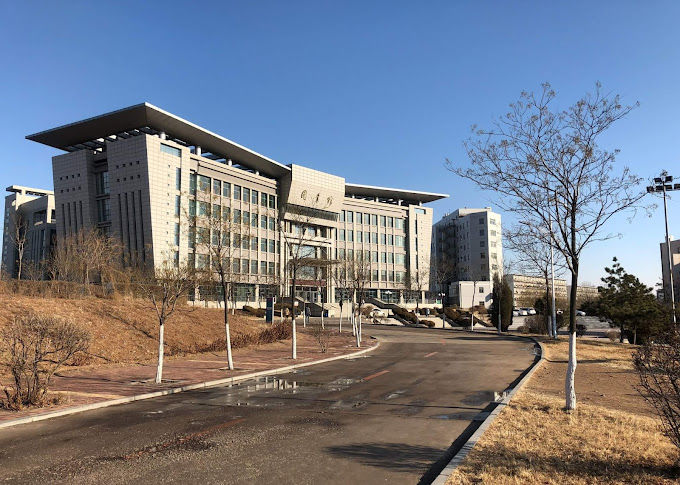
Jinzhou Medical University (JZMU), located in Jinzhou City, Liaoning Province, China, is a comprehensive medical institution with a rich history and a commitment to excellence in medical education, research, and healthcare service. Established in 1946 as Liaoning Medical School, it has since evolved into a prestigious university known for its innovative programs, state-of-the-art facilities, and dedication to advancing medical science.
The university's mission revolves around cultivating competent healthcare professionals, conducting cutting-edge research, and serving the community through healthcare initiatives. With a focus on medical education, Jinzhou Medical University offers undergraduate, graduate, and doctoral programs in various medical disciplines including Clinical Medicine, Stomatology, Nursing, Pharmacy, Public Health, and Traditional Chinese Medicine.
Jinzhou Medical University 's campus spans over 1.2 million square meters, equipped with modern teaching facilities, laboratories, and research centers. The university boasts a faculty comprised of distinguished scholars, experienced clinicians, and researchers who are actively engaged in advancing medical knowledge and improving healthcare practices.
One of the hallmarks of Jinzhou Medical University is its commitment to internationalization. The university actively collaborates with renowned medical institutions and universities worldwide, fostering academic exchanges, joint research projects, and student exchange programs. This global perspective enriches the educational experience, exposes students to diverse healthcare systems, and promotes cross-cultural understanding.
Jinzhou Medical University places a strong emphasis on research and innovation, with numerous research institutes and laboratories dedicated to various fields of medical science. Faculty members and students engage in groundbreaking research endeavors ranging from basic biomedical research to clinical trials and translational medicine. The university encourages interdisciplinary collaboration and provides ample resources and support to nurture research excellence.
Moreover, Jinzhou Medical University is deeply committed to serving the healthcare needs of the community. Through its affiliated hospitals and healthcare centers, the university provides high-quality medical services to the local population, while also actively participating in health promotion and disease prevention initiatives. Students have the opportunity to gain practical experience through clinical rotations in their 4700-bed hospital, preparing them to address real-world healthcare challenges.
In addition to its academic and research endeavours, Jinzhou Medical University is dedicated to upholding the highest standards of medical ethics and professionalism. The university instills in its students a sense of social responsibility, empathy, and integrity, emphasizing the importance of compassionate patient care and ethical practice.
As a testament to its academic excellence and contributions to the field of medicine, Jinzhou Medical University has received numerous accolades and recognitions both domestically and internationally. Its graduates are highly sought after by hospitals, research institutions, and healthcare organizations around the world, reflecting the university's reputation for producing competent and compassionate healthcare professionals.
Jinzhou Medical University stands as a beacon of excellence in medical education, research, and healthcare service. With its unwavering commitment to academic rigor, research innovation, and community engagement, JZMU continues to shape the future of medicine and make significant contributions to global healthcare advancement
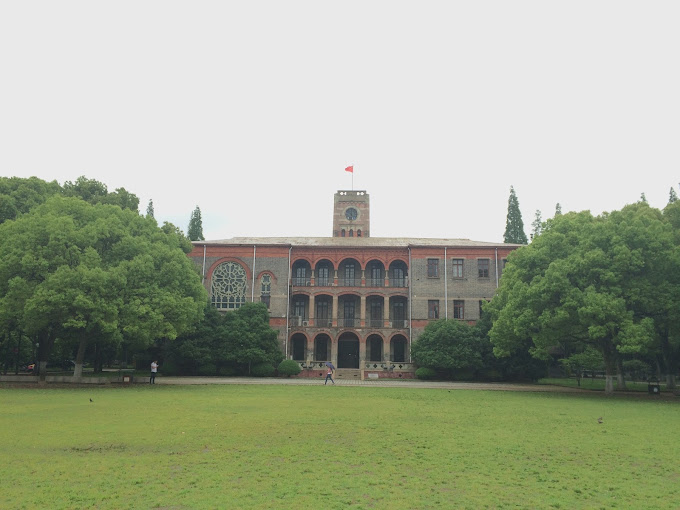
Soochow University, located in China, stands as a prominent institution renowned for its academic excellence, rich history, and vibrant campus life. Founded in 1900, the university has evolved into a leading center for education, research, and cultural exchange in China and globally. With its commitment to innovation, interdisciplinary collaboration, and global engagement, Soochow University has established itself as a beacon of learning and a hub of intellectual growth.
Soochow University traces its roots back to the late Qing dynasty when it was established as a private institution known as Dongwu College in Suzhou, Jiangsu Province. Throughout its history, the university has undergone several transformations, adapting to the changing educational landscape of China. In 1900, it was officially established as Soochow University, marking a significant milestone in its journey towards academic distinction.
Soochow University boasts a comprehensive range of UG & PG academic programs across various disciplines in medicine. The university is committed to fostering intellectual curiosity, critical thinking, and medical rigor among its students. Its faculty members, comprising distinguished scholars and researchers, contribute to the advancement of knowledge through cutting-edge research and innovative teaching methods.
Research is integral to the mission of Soochow University, driving innovation and addressing pressing challenges facing society. The university has established numerous research centres and institutes dedicated to advancing knowledge in areas such as biotechnology, nanotechnology, environmental science, and beyond. Collaborative research initiatives with domestic and international partners further enhance the university's research capabilities and global impact.
Soochow University places great emphasis on fostering international partnerships and promoting cross-cultural understanding. Through exchange programs, joint research projects, and academic collaborations, the university actively engages with institutions and scholars worldwide. This commitment to global engagement enriches the academic experience of students and faculty members while promoting cultural diversity and mutual learning. With more 2000 bed hospital it also boast superb clinical expreince for ite students.
Soochow University stands as a beacon of academic excellence, research innovation, and cultural exchange in China and beyond. With its rich history, diverse academic offerings, and commitment to global engagement, the university continues to inspire generations of scholars, researchers, and leaders. As it looks towards the future, Soochow University remains steadfast in its pursuit of excellence and its mission to shape a better world through education, research, and service.
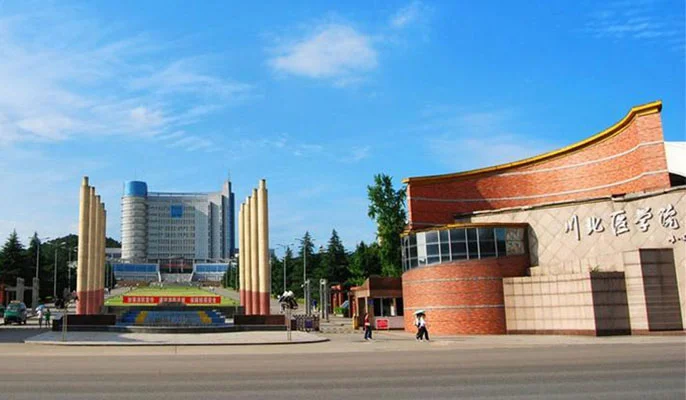
North Sichuan Medical University (NSMU), located in Nanchong, Sichuan Province, China, is a prestigious institution of higher learning dedicated to medical education, research, and healthcare services. Established in 1951, NSMU has evolved into a comprehensive medical university with a strong emphasis on academic excellence, scientific innovation, and community engagement.
North Sichuan Medical University traces its roots back to the former North Sichuan Medical College, which was founded in 1951. Over the decades, it has grown into a leading medical institution in China, renowned for its contributions to medical education and research.
North Sichuan Medical University offers a wide range of undergraduate, postgraduate, and doctoral programs in medicine, pharmacy, nursing, stomatology, public health, and other related disciplines. The university places a strong emphasis on practical training, clinical skills development, and research opportunities for its students.
North Sichuan Medical University boasts a distinguished faculty comprised of experienced educators, researchers, and medical professionals. Many faculty members are recognized experts in their respective fields, actively engaged in cutting-edge research projects and academic collaborations both domestically and internationally.
The university's research endeavors span various areas of medical science, including but not limited to molecular biology, genetics, pharmacology, infectious diseases, oncology, and traditional Chinese medicine. NSMU is committed to advancing medical knowledge and promoting healthcare innovation through its research initiatives.
NSMU is equipped with state-of-the-art facilities and resources to support its academic and research endeavors. The university campus features modern classrooms, laboratories, libraries, and clinical training centers equipped with the latest technologies and medical equipment.
Additionally, NSMU maintains partnerships and affiliations with leading hospitals, healthcare institutions, and research centers across China, providing students and faculty with access to diverse clinical settings and collaborative opportunities. North Sichuan University boast 2500 bed hospital to provide exhilarating clinical experience for its medical students.
North Sichuan Medical University actively promotes international exchange and collaboration in education and research. The university has established partnerships with numerous universities, research institutions, and medical organizations worldwide, facilitating student exchange programs, joint research projects, and academic conferences.
North Sichuan Medical University stands as a beacon of excellence in medical education, research, and healthcare services in China and beyond. With its rich history, academic prowess, and commitment to innovation and service, NSMU continues to uphold its mission of advancing medical knowledge, nurturing future healthcare leaders, and improving the health and well-being of communities around the world.
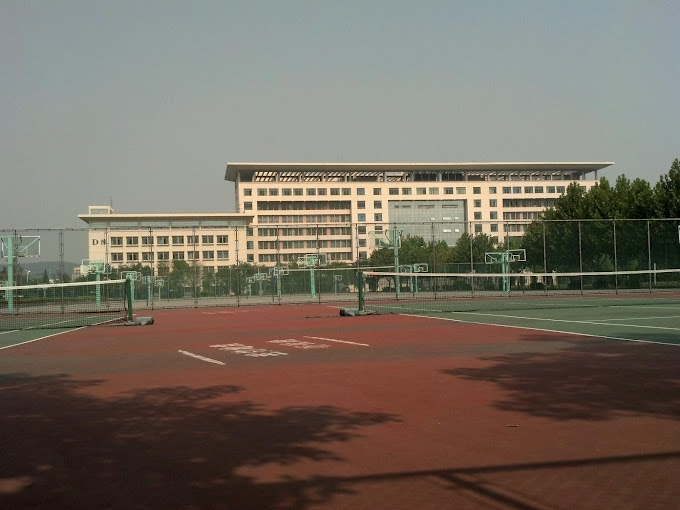
Xuzhou Medical University (XZMU), located in Xuzhou City, Jiangsu Province, China, is a renowned institution dedicated to medical education, research, and healthcare service. Established in 1958, it has evolved into a comprehensive medical university with a strong focus on training competent medical professionals, conducting cutting-edge research, and serving the healthcare needs of the community. With a history spanning several decades, Xuzhou Medical University has become a prominent center for medical education and research in China.
Xuzhou Medical University traces its roots back to the Xuzhou Advanced Health School founded in 1958. Over the years, it underwent several transformations and expansions, eventually achieving university status in 1982. Since then, it has continually grown in reputation and academic excellence.
Xuzhou Medical University offers a wide range of undergraduate, graduate, and postgraduate programs in medicine, pharmacy, nursing, public health, and related fields. The university is committed to providing high-quality education through its modern curriculum, state-of-the-art facilities, and experienced faculty members.
The university boasts a diverse and accomplished faculty comprising experienced professors, researchers, and medical professionals. Many faculty members are recognized experts in their respective fields and actively contribute to academic research and professional development.
Xuzhou Medical University places a strong emphasis on research and innovation to advance medical science and improve healthcare practices. The university is home to numerous research institutes, laboratories, and collaborative centers where faculty and students engage in groundbreaking research across various disciplines.
Xuzhou Medical University actively promotes international cooperation and exchange programs to enhance global perspectives and facilitate academic collaboration. It has established partnerships with prestigious universities and institutions worldwide, enabling students and faculty to participate in international exchanges, joint research projects, and academic conferences.
As a leading medical institution, and having 6000 bed hospital Xuzhou Medical University provides comprehensive clinical training programs and modern healthcare facilities to equip students with practical skills and clinical expertise. The university maintains affiliations with top hospitals and medical centers, offering students valuable opportunities for hands-on learning and patient care.
Xuzhou Medical University is recognized by the Chinese Ministry of Education and accredited by relevant regulatory bodies for its high standards of academic excellence, research integrity, and professional ethics. The university's commitment to quality education and healthcare has earned it widespread recognition and acclaim both nationally and internationally.
As Xuzhou Medical University continues to expand its academic programs, research endeavours, and international collaborations, it remains dedicated to its mission of advancing medical education, scientific discovery, and healthcare innovation. With a steadfast commitment to excellence and a vision for the future, the university is poised to make significant contributions to the field of medicine and the well-being of society.
Xuzhou Medical University stands as a beacon of excellence in medical education, research, and healthcare, embodying a rich legacy of academic achievement and societal impact. Through its unwavering commitment to knowledge, compassion, and service, the university continues to inspire the next generation of healthcare professionals and shape the future of medicine in China and beyond.
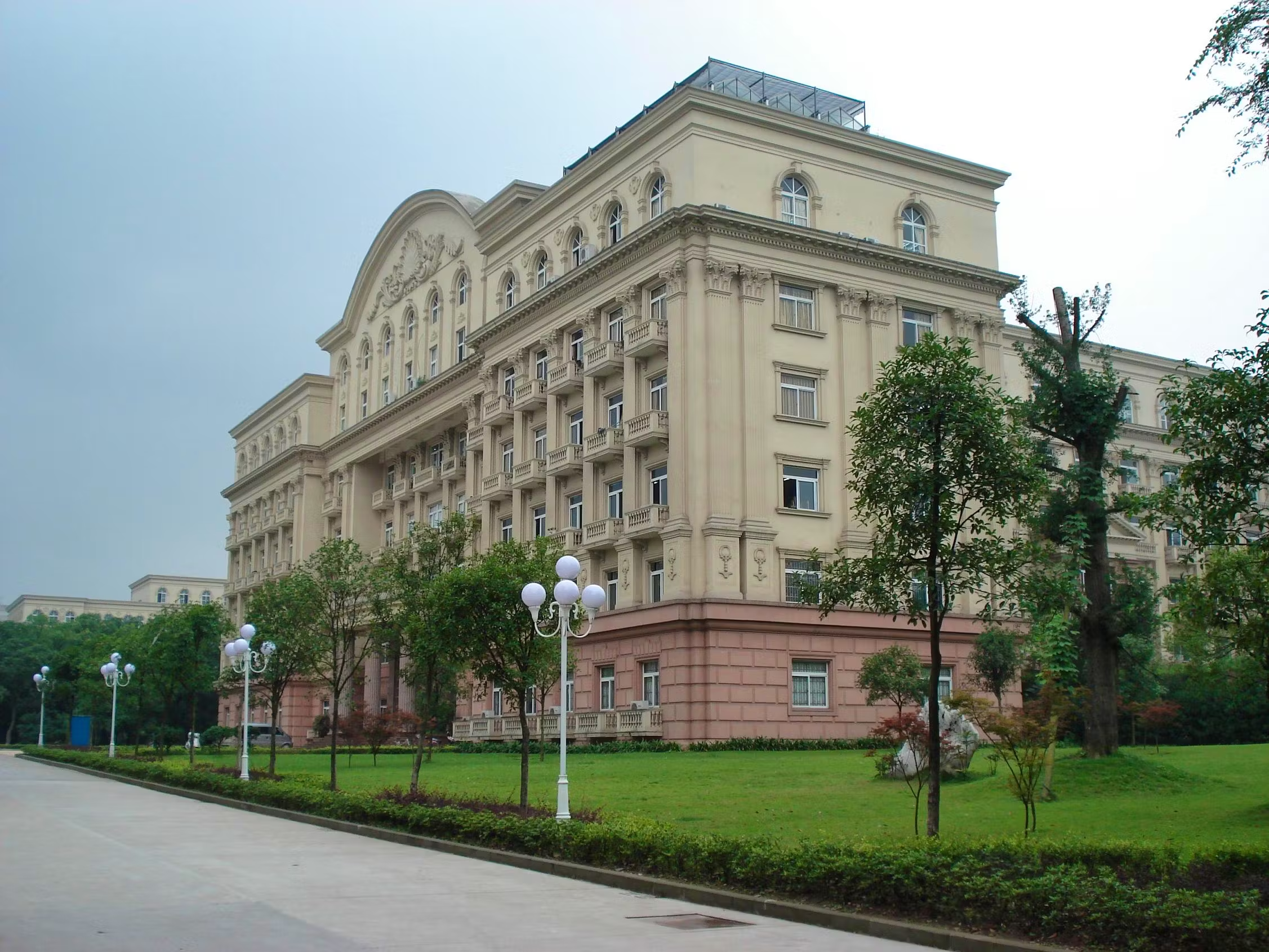
Southwest University (SWU), located in Chongqing, China, stands as one of the country's esteemed institutions of higher learning. Founded in 1906 as the Sichuan Provincial Agricultural School, SWU has evolved into a comprehensive university renowned for its academic excellence, research contributions, and cultural significance. With a rich history spanning over a century, Southwest University has continually adapted to societal changes while upholding its commitment to education, innovation, and community service.
Southwest University traces its origins to the early 20th century when it was established as the Sichuan Provincial Agricultural School. Over time, the institution underwent several transformations, expanding its scope beyond agriculture to encompass various disciplines. In 1985, it was renamed Southwest Agricultural University and subsequently Southwest University in 2005 to reflect its broader academic offerings and research endeavours.
Southwest University offers a diverse range of academic programs across multiple disciplines in medical. Its comprehensive curriculum caters to undergraduate, graduate, and doctoral students, providing them with a holistic educational experience that fosters critical thinking, creativity, and professional skills in medicine.
The university's medical faculties and departments are structured to meet the evolving needs of medical, society, and academia. SWU's academic offerings reflect a commitment to interdisciplinary learning and innovation. Students have the opportunity to engage in hands-on research, internships, clinical expereince and collaborative projects that prepare them for leadership roles in medicine. 2200 bed hospital boasts the teaching hospital for the medical students to gain hand on experience in clinical training.
Research is a cornerstone of Southwest University's mission, driving advancements in various domains and addressing pressing societal challenges. The university boasts state-of-the-art research facilities, laboratories, and centres of excellence that facilitate groundbreaking discoveries and technological innovations.Faculty members at SWU are actively involved in research endeavors in medicine research, through interdisciplinary collaboration and partnerships with industry and government agencies.
Southwest University places a strong emphasis on internationalization, fostering partnerships with academic institutions, research organizations, and corporations worldwide for medical excellence. These collaborations facilitate academic exchange, joint research projects, faculty mobility, and student exchange programs, enriching the university's academic environment and promoting cross-cultural understanding.
Southwest University international programs attract students and medical scholars from diverse cultural backgrounds, creating a vibrant and inclusive community that celebrates diversity and promotes global citizenship. Through international collaboration, SWU aims to expand its global footprint, enhance academic quality, and promote cross-cultural dialogue and cooperation.
Southwest University stands as a beacon of academic excellence, research innovation, and social responsibility in China and beyond. With a proud legacy of over a century, SWU continues to inspire generations of scholars, researchers, and leaders to pursue knowledge, embrace diversity, and make meaningful contributions to the world. As it looks toward the future, Southwest University remains committed to its core values of excellence, integrity, and service, shaping a brighter tomorrow for generations to come.
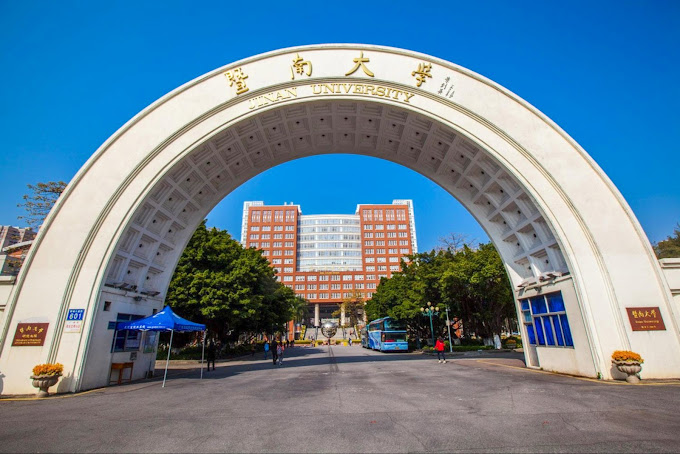
Jinan University, located in Guangzhou, China, is one of the oldest and most prestigious institutions of higher learning in the country. With a rich history spanning over a century, Jinan University has evolved into a comprehensive university offering a wide range of disciplines and programs. From its humble beginnings as a school for students from overseas Chinese communities, it has grown into a renowned center for education, research, and cultural exchange.
Founded in 1906, Jinan University has a significant historical significance. Initially established in Nanjing, it was known as the Jinan Academy. The university was later moved to Shanghai and then to Guangzhou due to historical events such as the Second Sino-Japanese War and the Chinese Civil War. Through these transitions, Jinan University has persevered, adapting and expanding to meet the evolving needs of its students and society.
Jinan University is recognized for its commitment to academic excellence and innovation. The university offers undergraduate, graduate, and doctoral programs across various disciplines in medicine. Its diverse academic offerings attract students from across China and around the world, contributing to a vibrant and multicultural campus environment for medical studies.
Research is a cornerstone of Jinan University's mission. The university fosters a culture of medical innovation and inquiry, encouraging doctors and medical students to pursue cutting-edge research that addresses pressing societal challenges. With state-of-the-art facilities, modern lab, 1900 bed ultra-modern hospital helps medical students to gain hand on experience for their physical clinical training. Jinan University is at the forefront of research in fields such as biotechnology, medical research, dentistry, pharmacy.
Jinan University places a strong emphasis on international collaboration and exchange. The university has established partnerships with academic institutions, research organizations, and industry leaders around the globe. These collaborations facilitate student and faculty exchanges, joint research projects, and cross-cultural initiatives that enrich the academic experience and broaden horizons.
The alumni network of Jinan University is extensive and influential, comprising graduates who have excelled in various department in medical studies around the world. Alumni play an active role in supporting the university's mission, providing mentorship and career guidance to current students, and contributing to the ongoing success and development of their alma mater.
Jinan University stands as a beacon of academic excellence, research innovation, and cultural exchange in China and beyond. With its rich history, diverse academic offerings, top medical research and commitment to excellence, it continues to shape the future by empowering generations of medicos to lead, innovate, and make a positive impact on the world. As it looks towards the future, Jinan University remains dedicated to its mission of advancing knowledge, fostering global citizenship, and serving the greater good.
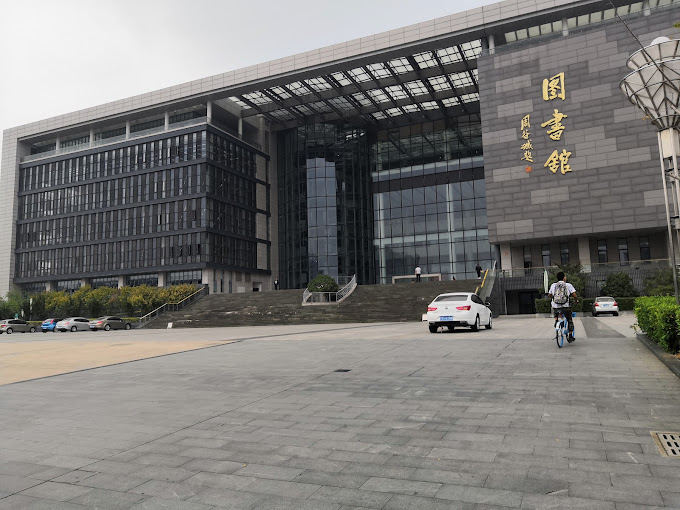
Jiangsu University (JSU) is one of China's prestigious higher education institutions located in Zhenjiang, Jiangsu Province. Established in 1902, it has evolved into a comprehensive university offering a wide array of disciplines and programs to both domestic and international students. With a rich history, a commitment to academic excellence, and a dedication to research and innovation, Jiangsu University has emerged as a prominent player in the Chinese educational landscape.
Jiangsu University traces its roots back to Sanjiang Normal School, founded in 1902 during the late Qing Dynasty. Over the decades, it underwent several transformations and expansions, eventually becoming Jiangsu University in 2001 through the merger of several educational institutions.
Jiangsu University boasts a diverse academic structure comprising various disciplines in medicine studies like MBBS in UG and Specialization in PG programme apart from pharmacy, dentistry and other medical courses.The university offers undergraduate, postgraduate, and doctoral programs across these disciplines, providing students with a comprehensive educational experience.
Research and innovation are integral components of Jiangsu University's academic ethos. The university actively promotes medical scientific research and technological innovation in medical fields, fostering a culture of inquiry and discovery among its faculty and students. From fundamental research to applied sciences, Jiangsu University is engaged in a wide spectrum of research endeavour’s aimed at addressing societal challenges and advancing human knowledge.
Jiangsu University places great emphasis on international collaboration in medical research and exchange, fostering partnerships with universities, research institutions, and industry players worldwide. Through academic exchanges, joint research projects, and collaborative programs, the university seeks to enhance its global presence and promote cross-cultural understanding and cooperation.
Jiangsu University boasts state-of-the-art facilities and infrastructure to support its academic and research endeavours. The university campus encompasses modern classrooms, laboratories, ultra-modern hospital for 1500 bed, libraries, and recreational facilities, providing students with a conducive environment for clinical learning, research, and medical developments.
Jiangsu University is committed to excellence in all its medical endeavour, striving to uphold the highest standards of academic integrity, teaching quality, and research excellence. Through continuous improvement and innovation, the university seeks to nurture the next generation of medicos, Doctors, scholars, and innovators who will contribute positively to health in society and the global community.
Over the years, Jiangsu University has made significant contributions to education, research, and innovation, earning recognition and acclaim both domestically and internationally. Its alumni have excelled in various fields, making valuable contributions to their professions, communities, and society at large.
Jiangsu University stands as a beacon of academic excellence, research prowess, and global engagement in the Chinese medical education landscape. With a commitment to fostering medical intellectual curiosity, innovation, and cross-cultural understanding, the university continues to empower medical students, faculty, and researchers to make meaningful contributions to the world and shape a brighter future for generations to come.
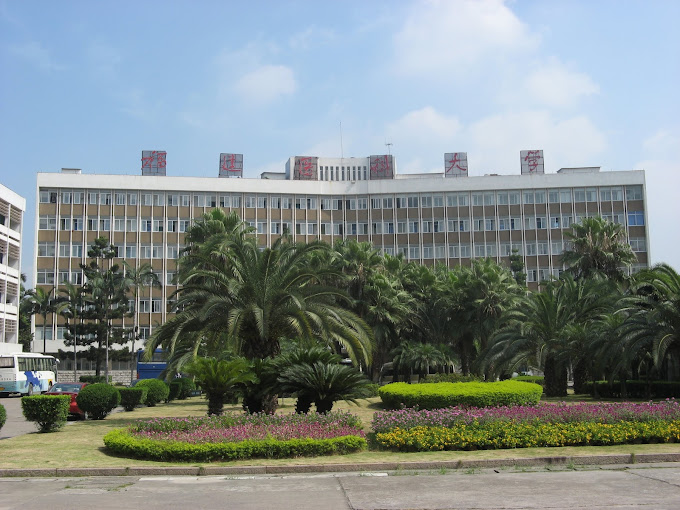
Fujian Medical University (FMU) is a prestigious institution located in Fuzhou, the capital city of Fujian Province, China. Established in 1937, it has grown into a leading medical university in China, renowned for its commitment to medical education, research, and healthcare services. With a rich history and a dedication to excellence, FMU has become a centre for medical innovation and global collaboration.
Fujian Medical University traces its roots back to the Fujian Provincial Medical Vocational School, founded in 1937. Over the decades, it evolved into Fujian Medical College and eventually attained university status in 1996, becoming Fujian Medical University. The university has since expanded its infrastructure, programs, and research initiatives to become a comprehensive institution of higher learning in the medical field.
Fujian Medical University offers a wide range of undergraduate like MBBS, graduate in medical specialisation, and doctoral programs in medicine, dentistry, pharmacy, nursing, public health, and medical technology. The university is committed to providing high-quality education that integrates theoretical knowledge with practical skills. Its curriculum is designed to meet international standards and prepare students for careers in healthcare, research, and academia.
Fujian Medical University boasts a talented faculty comprising experienced educators, clinicians, and researchers who are dedicated to advancing medical science and improving healthcare outcomes. The university encourages interdisciplinary collaboration and supports faculty members in pursuing cutting-edge research in areas such as cancer biology, infectious diseases, medical imaging, and traditional Chinese medicine.
Fujian Medical University is equipped with state-of-the-art research facilities, including laboratories, libraries, and specialized centers, to support its scientific endeavors. The university invests in modern technology and infrastructure to facilitate research excellence and innovation. Fujian Medical University boasts whoping 8500 bed hospital along with collaborative partnerships with domestic and international institutions further enhance to FMU's research capabilities, clinical rotations for its students and contribute to the global advancement of medical knowledge.
Fujian Medical University is committed to promoting internationalization and fostering cultural exchange in the medical community. The university actively collaborates with overseas universities, research institutions, and healthcare organizations to facilitate student exchange programs, joint research projects, and academic conferences. Through these initiatives, FMU seeks to broaden students' perspectives, promote cross-cultural understanding, and address global health challenges.
Fujian Medical University contributions to medical education, research, and healthcare have earned it national and international recognition. The university's academic achievements, scientific discoveries, and healthcare innovations have made significant contributions to the advancement of medical science and the improvement of patient care worldwide. FMU's reputation for excellence continues to attract students, faculty, and collaborators from around the globe.
Fujian Medical University stands as a beacon of excellence in medical education, research, and healthcare in China and beyond. With its rich history, academic excellence, and commitment to innovation, FMU continues to shape the future of medicine and make a positive impact on global health. As it looks to the future, FMU remains dedicated to its mission of training healthcare professionals, advancing medical knowledge, and serving humanity with compassion and integrity.
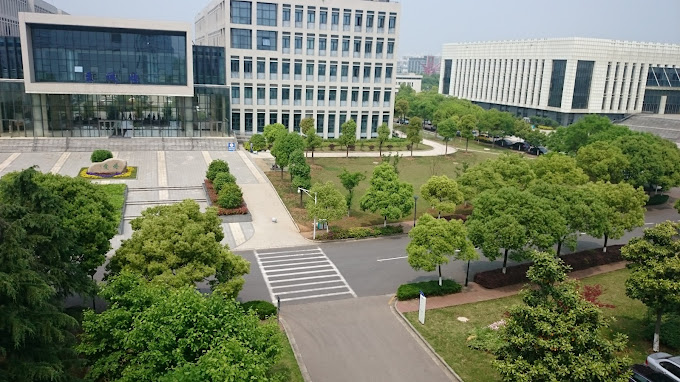
Nanjing Medical University (NMU), situated in Nanjing, Jiangsu Province, China, is one of the premier medical institutions in the country, with a rich history spanning nearly a century. Established in 1934 as the Jiangsu Provincial College of Health Policy and Management, it has evolved into a comprehensive university dedicated to medical education, research, and healthcare services.
NMU's roots can be traced back to the foundation of the National Jiangsu Medical College in 1934. Over the decades, it underwent several transformations, consolidations, and expansions. In 1957, it was renamed Nanjing Medical College. Finally, in 1993, it attained university status and was designated as Nanjing Medical University.
Nanjing Medical University has distinguished itself as a centre of excellence in medical education and research. The university offers undergraduate, graduate, and doctoral programs across various disciplines, including medicine, pharmacy, nursing, stomatology, and public health. Its comprehensive curriculum integrates theoretical knowledge with practical training, ensuring that students are well-prepared to meet the demands of modern healthcare.
Nanjing Medical University boasts state-of-the-art facilities, including modern laboratories, research centers, teaching hospitals, and libraries. These facilities provide students and faculty members with access to cutting-edge technology and resources, fostering innovation and academic advancement.
Research is a cornerstone of NMU's academic mission. The university is committed to conducting groundbreaking research in various fields of medicine and healthcare. Faculty members and students engage in interdisciplinary research projects aimed at addressing pressing health challenges, advancing medical knowledge, and improving patient care.
Nanjing Medical University actively collaborates with renowned academic institutions, research organizations, and healthcare providers worldwide. These collaborations facilitate the exchange of knowledge, expertise, and best practices, enriching the university's academic environment and promoting global health initiatives.
NMU has established partnerships and exchange programs with universities and institutions in countries across the globe. These collaborations enable students and faculty members to participate in international conferences, seminars, and research endeavors, broadening their perspectives and fostering cultural exchange.
Clinical training is an integral component of Nanjing Medical University s educational programs. The university has 1130 bed teaching hospital along with affiliations with top-tier hospitals and healthcare institutions, providing students with opportunities to gain hands-on experience under the guidance of experienced clinicians and healthcare professionals for their clinical trainings.
Nanjing Medical University is committed to excellence in all aspects of its medical academic mission. Through rigorous academic standards, innovative medical research initiatives, and a dedication to serving humanity, the university continues to make significant contributions to the field of medicine and healthcare.
Nanjing Medical University stands as a beacon of academic excellence, research innovation, and community service in China and beyond. With its rich history, commitment to excellence, and dedication to advancing medical knowledge and improving patient care, NMU remains at the forefront of medical education and research in the 21st century.
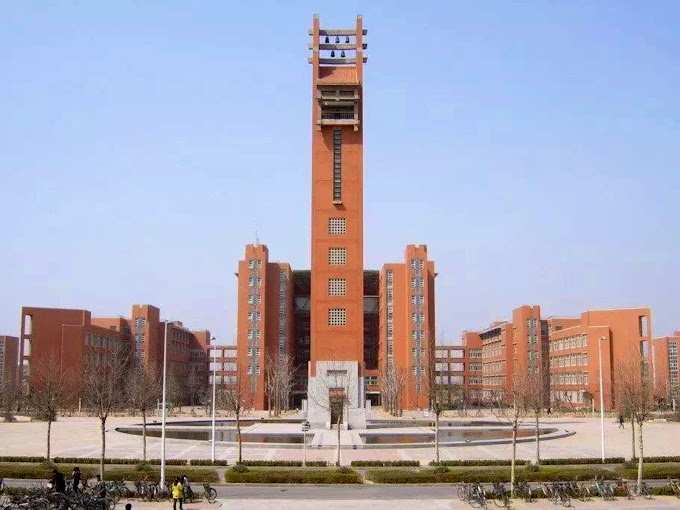
Zhengzhou University (ZZU), situated in the heart of Zhengzhou City, the capital of Henan Province in China, stands as a beacon of higher education excellence in the region and beyond. With its rich history, diverse academic programs, cutting-edge research initiatives, and commitment to innovation and societal development, Zhengzhou University has emerged as a prominent institution both nationally and internationally.
Zhengzhou University traces its roots back to 1956 when it was established as the first comprehensive university in Henan Province. Over the decades, it has undergone significant transformations, expansions, and academic advancements, evolving into a multidisciplinary institution with a global footprint.
With a focus on medical academic excellence and innovation, Zhengzhou University offers a wide array of undergraduate, graduate, and doctoral programs across various disciplines in medicine studies. The university's comprehensive medical curriculum and rigorous medical academic standards prepare medicos to excel in their chosen fields and contribute meaningfully to society.
Zhengzhou University is committed to fostering a culture of medical research and innovation. It boasts state-of-the-art research facilities, laboratories, and centres of excellence that facilitate groundbreaking research across diverse domains. The university encourages interdisciplinary collaboration and partnerships with industry, government agencies, and international institutions to address pressing global challenges and drive innovation-led growth. It also boast 7000 bed hospital for its medical students to gain hand on experience for clinical rotations and trainings.
Recognizing the importance of global engagement and collaboration, Zhengzhou University actively seeks partnerships with renowned medical universities, research institutions, and organizations worldwide. Through exchange programs, joint research projects, and academic conferences, the university promotes cross-cultural understanding, knowledge sharing, and academic mobility, enriching the academic experience for students and faculty alike.
In an era defined by rapid technological advancements and digital transformation, Zhengzhou University embraces innovation in teaching, learning, and administration. The university leverages cutting-edge technologies, online platforms, and digital resources to enhance the medical educational experience, promote accessibility, and facilitate lifelong learning opportunities for students and faculty.
Zhengzhou University stands as a symbol of academic excellence, research innovation, and societal impact. With its rich heritage, diverse academic programs, global outlook, and commitment to excellence, Zhengzhou University continues to inspire generations of students, scholars, and researchers to pursue knowledge, foster innovation, and make meaningful contributions to society and the world at large. As it looks towards the future, Zhengzhou University remains steadfast in its mission to empower individuals, transform communities, and shape a brighter tomorrow through education and enlightenment.
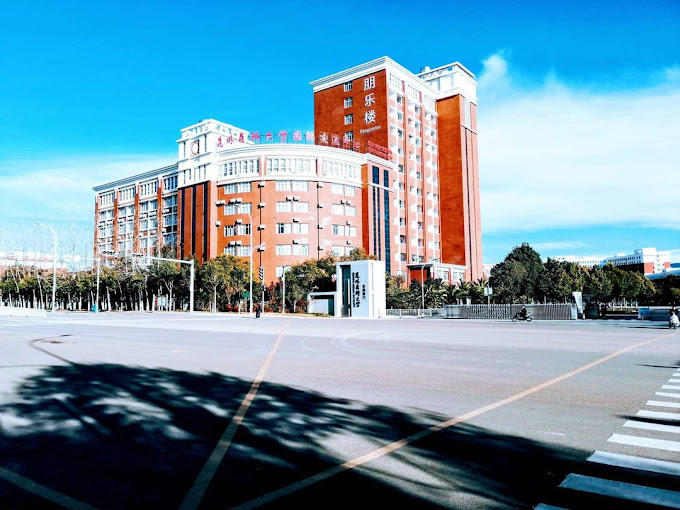
Kunming Medical University (KMU), located in Kunming, the capital city of Yunnan Province, China, is a renowned institution dedicated to medical education, research, and healthcare. Established in 1933 as Kunming Medical College, it has evolved into one of China's leading medical universities, recognized for its commitment to excellence in medical training, scientific innovation, and community service. In this comprehensive overview, we will explore the history, academic programs, research endeavours, international collaborations, and societal impact of Kunming Medical University.
Kunming Medical University traces its roots back to the early 20th century when it was founded as Kunming Medical College. Over the decades, the university has undergone significant growth and transformation, expanding its academic offerings, infrastructure, and international reach. It has consistently upheld its mission to advance medical education, produce competent healthcare professionals, and contribute to the improvement of public health both locally and globally.
Kunming Medical University offers a wide array of undergraduate, graduate, and postgraduate programs in various disciplines of medicine, dentistry, nursing, pharmacy, and medical technology. The university's comprehensive curriculum integrates theoretical knowledge with practical training, emphasizing hands-on clinical experience and research-based learning. With state-of-the-art facilities and a dedicated faculty comprising esteemed educators and medical professionals, KMU ensures that students receive a holistic education that prepares them for the complexities of modern healthcare practice and provide best of the clinical training for its medical students through 2536 bed hospital along with other affiliated hospitals and clinics.
Research is a cornerstone of Kunming Medical University's medical academic endeavors. The university actively promotes scientific inquiry and innovation across diverse fields of medical and biomedical sciences. Faculty members and students engage in cutting-edge research projects aimed at addressing pressing health challenges, discovering novel treatments, and advancing medical technology. KMU fosters a culture of interdisciplinary collaboration, encouraging partnerships with domestic and international institutions, government agencies, and industry stakeholders to maximize the impact of its research initiatives.
Kunming Medical University places great emphasis on internationalization and global engagement. It has established partnerships and academic exchange programs with universities, research institutions, and healthcare organizations worldwide. These collaborations facilitate cross-cultural learning opportunities, knowledge exchange, and collaborative research initiatives. KMU actively recruits international students and scholars, providing them with access to high-quality education and cultural enrichment experiences. Through its international collaborations, the university seeks to foster a diverse and inclusive academic community committed to addressing global health challenges and promoting mutual understanding among nations.
Kunming Medical University stands as a beacon of excellence in medical education, research, and healthcare delivery. With a rich history of academic achievement, a commitment to scientific innovation, and a dedication to community service, KMU continues to make significant contributions to the advancement of medicine and public health. As it embraces the opportunities and challenges of the 21st century, Kunming Medical University remains steadfast in its mission to educate the next generation of healthcare professionals, expand the frontiers of medical knowledge, and improve the lives of people around the world through innovation, compassion, and excellence.

Chongqing Medical University (CQMU) is a prestigious institution located in Chongqing, China, recognized for its excellence in medical education, research, and healthcare services. Established in 1956, it has evolved into a comprehensive medical university offering undergraduate, graduate, and doctoral programs across various disciplines of medicine, pharmacy, nursing, and more.
Chongqing Medical University traces its roots to the merger of several medical colleges and institutions in the mid-20th century. Originally known as Chongqing Medical College, it gained university status in 1985 and was renamed Chongqing Medical University in 1996, signifying its expanded scope and academic contributions.
Chongqing Medical University offers a wide range of academic programs designed to meet the evolving needs of healthcare and medical education. Its undergraduate programs cover medicine, dentistry, medical imaging, nursing, medical laboratory science, and pharmacy, among others. The university also offers postgraduate and doctoral programs in various medical specialties, fostering advanced research and specialization in healthcare.
The university boasts a diverse and accomplished faculty comprising renowned medical professionals, researchers, and scholars. Faculty members actively engage in cutting-edge research across numerous disciplines, contributing significantly to advancements in medical science, healthcare technology, and clinical practice.
Chongqing Medical University emphasizes interdisciplinary research collaborations and partnerships with domestic and international institutions, facilitating knowledge exchange and innovation in healthcare. Its research endeavors encompass areas such as biomedical sciences, clinical medicine, public health, traditional Chinese medicine, and health policy, addressing pressing healthcare challenges and improving patient care outcomes.
Chongqing Medical University is equipped with state-of-the-art facilities and resources to support its academic and research endeavours. The university features modern laboratories, teaching hospitals of 8000 bed hospital. simulation centres, and specialized clinical departments, providing students with hands-on learning experiences and clinical exposure.
Chongqing Medical University maintains extensive libraries, digital databases, and research centers, offering access to a wealth of medical literature, journals, and academic resources. These facilities serve as hubs for learning, research, and collaboration, fostering an environment conducive to academic excellence and innovation.
Chongqing Medical University is committed to promoting international cooperation and exchange in education, research, and healthcare. The university has established partnerships with leading academic institutions, medical schools, and healthcare organizations worldwide, facilitating student exchange programs, joint research projects, and faculty collaborations.
Through international exchange initiatives, students and faculty members have the opportunity to broaden their perspectives, engage in cross-cultural learning experiences, and contribute to global health initiatives. These collaborations enhance the university's academic reputation, foster intercultural understanding, and drive innovation in medical education and research.
Chongqing Medical University upholds a steadfast commitment to excellence, innovation, and continuous improvement in medical education, research, and healthcare delivery. By fostering a culture of academic rigor, scientific inquiry, and professional integrity, the university prepares future generations of healthcare professionals to meet the evolving challenges of the global healthcare landscape.
Through its unwavering dedication to advancing medical knowledge, promoting interdisciplinary collaboration, and serving the needs of society, Chongqing Medical University stands at the forefront of medical education and research in China and beyond. With its rich history, academic prowess, and commitment to excellence, Chongqing Medical University remains a beacon of innovation and leadership in the field of medicine and healthcare.
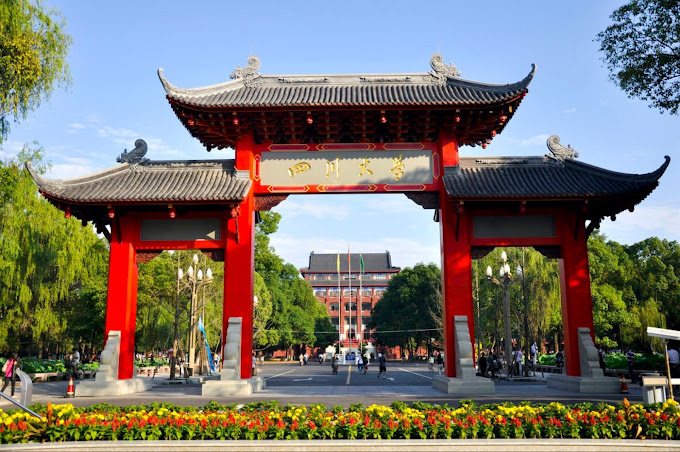
Sichuan University, located in Chengdu, the capital city of Sichuan Province in southwestern China, stands as one of the nation's key comprehensive universities with a rich history, diverse academic programs, and a strong research orientation. Founded in 1896, it has evolved into a prestigious institution renowned for its academic excellence, cultural significance, and contributions to society.
Sichuan University traces its origins to the Sichuan Tongwen Guan (Imperial Academy of Sichuan), established during the Qing Dynasty. Over the decades, it underwent several transformations and reorganizations, eventually emerging as Sichuan University in its current form. Throughout its history, the university has weathered political upheavals and societal changes, demonstrating resilience and adaptability.
The university encompasses a comprehensive array of disciplines, covering several fields in medicine. Its medical academic structure comprises multiple colleges, schools, and departments, each dedicated to specialized areas of study. Sichuan University boasts a robust faculty comprising esteemed medical scholars, researchers, and educators committed to fostering academic excellence and innovation.
Research constitutes a cornerstone of Sichuan University's mission, with a focus on advancing medicine knowledge, addressing societal challenges, and driving medical development. The university actively promotes interdisciplinary collaboration and invests in state-of-the-art facilities and resources to support cutting-edge research initiatives. University also boasts 4300 bed ultra-modern teaching hospital for the comprehensive clinical training for its medical students. Its research endeavours span diverse domains, including but not limited to biotechnology, environmental science, information technology, renewable energy, and traditional Chinese medicine.
Sichuan University actively cultivates international partnerships and collaborations to foster academic exchange, cultural understanding, and mutual enrichment in medical research. It maintains strategic alliances with renowned universities, research institutions, and industry partners worldwide, facilitating joint research projects, student exchange programs, and faculty engagement initiatives. These collaborations contribute to the university's global visibility and reputation as a centre of academic excellence.
Beyond medical academics, Sichuan University offers a vibrant and dynamic campus life, characterized by a diverse array of extracurricular activities, cultural events, and student organizations. Students have ample opportunities to engage in sports, artistic pursuits, community service, and leadership development activities, fostering holistic personal growth and enrichment. The university's supportive campus environment promotes camaraderie, creativity, and social responsibility among its student body.
Sichuan University stands as a beacon of academic excellence, cultural heritage, and social responsibility in China and beyond. With a rich history, diverse academic programs, cutting-edge research initiatives, and a vibrant campus community, it continues to inspire and empower generations of students, scholars, and professionals to realize their full potential and make a positive impact on the world. As it continues to evolve and adapt to the changing landscape of higher education, Sichuan University remains committed to its mission of advancing knowledge, fostering innovation, and serving the greater good.
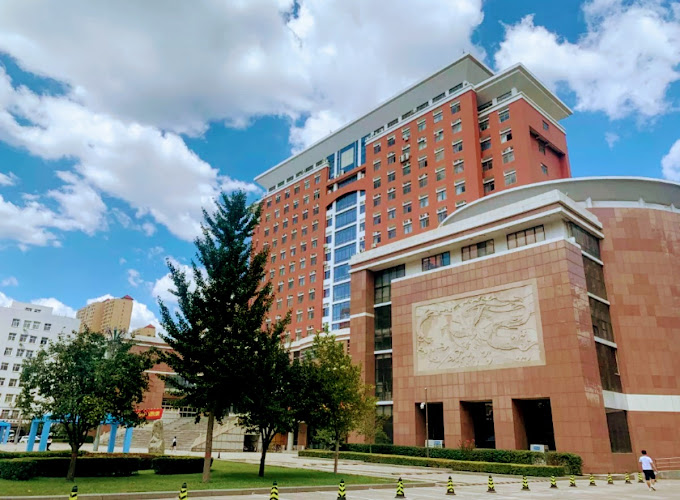
Hebei Medical University (HMU) is a prominent institution of higher learning located in Shijiazhuang, Hebei Province, China. Established in 1894, it has a rich history spanning over a century of academic excellence and contributions to medical education, research, and healthcare. With a commitment to innovation, leadership, and global collaboration, Hebei Medical University has evolved into a comprehensive medical university known for its rigorous academic programs, cutting-edge research, and dedication to serving the health needs of the community.
Hebei Medical University traces its origins to the Beiyang Medical School, which was founded during the late Qing Dynasty. Over the years, it underwent several transformations and expansions, ultimately emerging as Hebei Medical University in 1958. Throughout its history, the university has maintained a steadfast commitment to advancing medical education and healthcare delivery in China and beyond.
Hebei Medical University offers a wide array of undergraduate, graduate, and doctoral programs in various disciplines of medicine, dentistry, nursing, pharmacy, and medical technology. The university places a strong emphasis on interdisciplinary education, practical training, and research-driven learning experiences to equip students with the knowledge, skills, and competencies required to excel in their respective fields.
The university boasts a highly qualified faculty comprising renowned medical scholars, researchers, and healthcare professionals who are actively engaged in groundbreaking research, clinical practice, and academic mentorship. With state-of-the-art laboratories, research centers, and collaborative partnerships with leading institutions worldwide, Hebei Medical University remains at the forefront of medical research and innovation, addressing critical healthcare challenges and contributing to advancements in medical science and technology.
Hebei Medical University have more than 9000 bed ultra-modern teaching hospital and also maintains strong affiliations with numerous hospitals, clinics, and healthcare institutions across Hebei Province and beyond, providing students with unparalleled opportunities for clinical training, hands-on experience, and patient care. Through these affiliations, students gain exposure to diverse medical specialties, case presentations, and treatment modalities, preparing them for successful careers in healthcare practice, research, and administration.
Hebei Medical University is actively engaged in fostering international collaboration and exchange programs with universities, research institutions, and healthcare organizations worldwide. Through academic partnerships, joint research initiatives, and student exchange programs, the university promotes cross-cultural understanding, knowledge sharing, and global cooperation in addressing global health challenges and advancing medical education and research on a global scale.
Hebei Medical University boasts modern infrastructure, state-of-the-art facilities, and cutting-edge technology to support teaching, research, and healthcare delivery. The university campus encompasses academic buildings, research centers, libraries, student dormitories, sports facilities, and healthcare clinics, providing a conducive environment for learning, innovation, and collaboration.
At Hebei Medical University, students experience a vibrant and dynamic campus life enriched with diverse cultural, social, and extracurricular activities. From student clubs and organizations to sports teams and cultural events, the university offers ample opportunities for students to explore their interests, develop leadership skills, and forge lifelong friendships in a supportive and inclusive community.
Looking ahead, Hebei Medical University remains committed to its mission of excellence in education, research, and healthcare. As it continues to adapt to the evolving landscape of medical science, technology, and healthcare delivery, the university will strive to uphold its core values of integrity, innovation, and compassion while embracing new opportunities for growth, collaboration, and impact in shaping the future of medicine and healthcare both in China and globally.
Hebei Medical University stands as a beacon of academic excellence, innovation, and service in the field of medical education and research. With its rich heritage, world-class faculty, and unwavering commitment to excellence, the university continues to inspire and empower future generations of healthcare professionals to make meaningful contributions to the advancement of medical science, patient care, and public health for years to come.
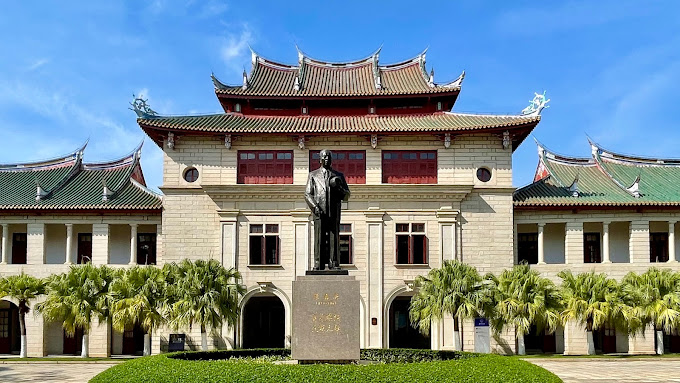
Xiamen University, nestled in the coastal city of Xiamen, China, stands as a beacon of academic excellence, innovation, and cultural richness. Founded in 1921 as the first university in China to be established by an overseas Chinese, it has evolved into a prestigious institution renowned for its comprehensive curriculum, vibrant campus life, and global outlook. With a history spanning nearly a century, Xiamen University (XMU) has continually upheld its commitment to fostering intellectual growth, promoting cultural exchange, and contributing to society's advancement. In this exploration, we delve into the multifaceted facets that define the essence of Xiamen University.
The origins of Xiamen University can be traced back to the vision of Mr. Tan Kah Kee, a prominent overseas Chinese philanthropist and entrepreneur. Inspired by his dedication to education and patriotism, Tan Kah Kee spearheaded the establishment of what was then known as Amoy University in 1921. The university aimed to provide quality education and promote Chinese culture and national rejuvenation.
Throughout its history, Xiamen University has weathered numerous challenges, including political upheavals and economic transformations. Despite these obstacles, the university persevered, adapting and expanding its academic programs to meet the evolving needs of society. In 1981, Amoy University merged with Fujian Institute of Technology, leading to the formation of the modern-day Xiamen University.
Xiamen University has garnered acclaim both domestically and internationally for its commitment to medical academic excellence and innovation. Boasting a comprehensive range of disciplines across medical studies, the university offers students a diverse array of educational opportunities.
At the undergraduate level in MBBS programme, students engage in rigorous coursework guided by esteemed faculty members who are experts in the medical field. Through innovative teaching methods, research opportunities, and experiential learning initiatives, Xiamen University equips students with the knowledge, skills, and clinical training abilities necessary to thrive in today's rapidly changing world.
Furthermore, Xiamen University places a strong emphasis on medical research and innovation, with state-of-the-art facilities and laboratories fostering interdisciplinary collaboration and groundbreaking discoveries. From exploring medicine solutions to advancing medical technologies, faculty and students alike are at the forefront of innovation, driving progress and creating a lasting impact on society. It also maintained 1909 bed hospital for clinical training experience for its medical students.
As a global institution, Xiamen University is committed to fostering cross-cultural understanding and collaboration. Through strategic partnerships with leading universities and medical research institutions around the world, the university promotes international exchange programs, joint research initiatives, and academic conferences, enriching the academic experience for students and faculty alike.
Additionally, Xiamen University welcomes a diverse student body, with students hailing from over 100 countries and regions. This multicultural environment fosters a spirit of inclusivity and mutual respect, providing students with invaluable opportunities to broaden their perspectives, cultivate global citizenship, and forge lifelong friendships.
Xiamen University stands as a testament to the transformative power of medical education, innovation, and cultural exchange. With a rich history, a commitment to excellence, and a global perspective, the university continues to inspire generations of students, scholars, and global citizens to shape a better world for future generations. As it looks towards the future, Xiamen University remains steadfast in its dedication to advancing knowledge, fostering understanding, and building bridges across cultures and continents

China Medical University (CMU) is a prestigious institution located in Shenyang, Liaoning Province, China. Founded in 1931, it is one of the oldest and most renowned medical universities in the country. Over its illustrious history, CMU has evolved into a comprehensive institution of higher learning dedicated to medical education, research, and healthcare services. With a strong emphasis on academic excellence, innovation, and global collaboration, CMU has established itself as a leader in medical education and research both domestically and internationally.
The roots of China Medical University trace back to its predecessor, the Chinese Workers'-Peasants' Red Army Military Medical School, which was founded in Ruijin, Jiangxi Province, in 1931 during a critical period in China's history. The school later relocated several times before settling in its current location in Shenyang in 1940. Throughout its journey, the institution has undergone significant transformations, adapting to the changing landscape of medical education and research in China.
China Medical University offers a wide range of undergraduate like MBBS, graduate medical courses in specilaisation and doctoral programs across various disciplines of medicine, pharmacy, nursing, public health, and related fields. The university's commitment to academic excellence is reflected in its rigorous curriculum, state-of-the-art facilities, and renowned faculty members who are experts in the medical fields. Students at CMU benefit from a dynamic learning environment that fosters critical thinking, hands-on experience, and interdisciplinary collaboration.
One of China Medical University 's distinctive features is its strong emphasis on medical research and innovation. The university houses several research institutes, laboratories, and centres of excellence dedicated to advancing knowledge in areas such as biomedical sciences, clinical medicine, pharmacology, and public health. Through interdisciplinary research initiatives and partnerships with leading institutions worldwide, China Medical University is at the forefront of scientific discovery and medical breakthroughs.
China Medical University 's commitment to research excellence is further demonstrated by its extensive collaborations with international universities, research institutions, and healthcare organizations. These partnerships facilitate the exchange of knowledge, expertise, and resources, enriching the academic experience and expanding opportunities for global engagement and collaboration.
In addition to its academic and research endeavours, CMU plays a crucial role in providing healthcare services to the local community and beyond. The university operates 3700 two separate teaching hospital and others affiliated hospitals and medical centres equipped with advanced medical technologies and staffed by skilled healthcare professionals. These facilities serve as teaching hospitals for students and training sites for medical professionals, while also delivering high-quality healthcare services to patients from diverse backgrounds.
As China continues to undergo rapid socioeconomic development and healthcare reform, the role of institutions like CMU becomes increasingly vital in shaping the future of healthcare delivery, medical education, and scientific innovation. With its rich legacy, commitment to excellence, and visionary leadership, China Medical University remains a beacon of academic excellence and a driving force for positive change in the field of medicine and healthcare.
China Medical University stands as a testament to China's commitment to advancing medical education, research, and healthcare. With its distinguished history, unwavering dedication to excellence, and vibrant academic community, CMU continues to inspire generations of healthcare professionals, scientists, and scholars to pursue their passions and make meaningful contributions to the advancement of medical science and the improvement of human health.

Huazhong University of Science and Technology (HUST) is one of China's premier higher education institutions, renowned for its excellence in science, engineering, and technology. Established in 1953, HUST has grown into a comprehensive university with a strong focus on research, innovation, and academic excellence. Situated in Wuhan, the capital city of Hubei Province, HUST occupies a prominent position in China's educational landscape and has made significant contributions to the country's development and advancement.
With a sprawling campus covering over 1,153 acres, HUST accommodates a diverse student body and a highly qualified medical faculty. The university boasts 42 schools and departments, offering undergraduate, graduate, and doctoral programs across a wide range of disciplines, including engineering, science, medicine, management, humanities, and social sciences. The multidisciplinary approach at HUST encourages collaboration and innovation, fostering a dynamic academic environment that nurtures creativity and critical thinking.
Huazhong University of Science and Technology places a strong emphasis on medical research and innovation, driving forward cutting-edge developments in various fields. The university is home to numerous medical research institutes and centres dedicated to advancing knowledge and addressing real-world challenges in healthcare.
The university's commitment to excellence in medical research is reflected in its state-of-the-art facilities and infrastructure. Huazhong University of Science and Technology boasts world-class laboratories, research centres, and libraries equipped with advanced resources and technology to support academic and scientific inquiry. The university also boasts 6000 bed hospital for its medical students for clinical trainings and actively promotes collaboration with industry partners, fostering synergies between medical academia and the private sector to drive innovation and technology in the field of medicine studies.
Huazhong University of Science and Technology places a strong emphasis on internationalization, actively engaging in academic exchange and collaboration with institutions worldwide. The university has established partnerships with renowned universities and research institutions across the globe, facilitating student exchange programs, joint research projects, and faculty collaborations. Through its international initiatives, HUST aims to cultivate a global perspective among its students and faculty, promoting cross-cultural understanding and cooperation in the pursuit of knowledge and innovation.
At HUST, students benefit from a rich and vibrant learning environment that encourages intellectual curiosity, critical thinking, and practical skills development. The university offers a wide range of academic programs tailored to meet the diverse interests and aspirations of its student body. Whether pursuing degrees in engineering, medicine, business, or the humanities, students at HUST receive a rigorous and comprehensive education that prepares them for success in their chosen fields.
Huazhong University of Science and Technology stands as a beacon of academic excellence and innovation, serving as a catalyst for progress and development in China and beyond. With its rich history, diverse community, and unwavering commitment to excellence, HUST continues to inspire generations of students and scholars to pursue their passions, expand their horizons, and make a difference in the world.
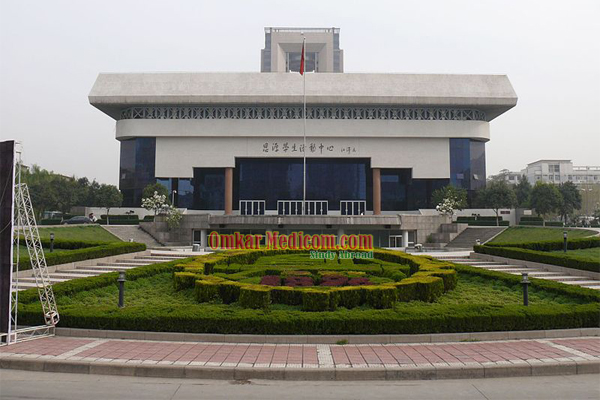
Xi'an Jiaotong University (XJTU) stands as a prominent institution in China, renowned for its academic excellence, innovative research, and rich history. Founded in 1896, it has evolved into a comprehensive university with a focus on science and engineering while also excelling in various other disciplines. XJTU's journey reflects the transformation of Chinese education and its commitment to global competitiveness.
Established as Jiaotong University in Shanghai during the late Qing Dynasty, the institution aimed to modernize China's transportation infrastructure and cultivate engineering talent. After several relocations due to political upheavals, the university settled in Xi'an, Shaanxi Province, in 1956, where it was renamed Xi'an Jiaotong University. This move marked a new chapter in the university's history, aligning it with China's strategic development goals in the western region.
Xi'an Jiaotong University has emerged as a leading research university in China, boasting a comprehensive range of disciplines across its various schools and departments along with studies in medicine. The university prioritizes innovation and interdisciplinary collaboration, fostering a dynamic academic environment conducive to groundbreaking research and development. Its faculties cover fields such as engineering, science, medicine, economics, management, humanities, and social sciences, catering to diverse academic interests and career aspirations.
Xi'an Jiaotong University places a strong emphasis on research and innovation, spearheading numerous projects and initiatives in collaboration with industry partners and government agencies. The university houses state-of-the-art laboratories, research centers, and technology parks, facilitating cutting-edge research in areas such as advanced manufacturing, renewable energy, biotechnology, information technology, and sustainable development. XJTU's contributions to scientific knowledge and technological advancement have earned it international recognition and acclaim.
Xi'an Jiaotong University is committed to fostering global partnerships and promoting cultural exchange and cooperation. The university actively collaborates with institutions and organizations worldwide, facilitating student exchange programs, joint research endeavors, and academic conferences. Its diverse student body and faculty hail from different countries and regions, enriching the campus community with diverse perspectives and experiences. XJTU's internationalization efforts align with China's broader vision of promoting cross-cultural understanding and academic exchange on a global scale.
Xi'an Jiaotong University offers a vibrant and enriching educational experience, combining rigorous academic training with extracurricular activities and personal development opportunities. The university's undergraduate, graduate, and doctoral programs provide students with a solid foundation in their chosen fields while encouraging critical thinking, creativity, and independent inquiry. Beyond the classroom, students engage in various clubs, societies, and cultural events, fostering friendships and forging lifelong connections.
Xi'an Jiaotong University boasts a modern and well-equipped 7000 bed hospital for its students to gain in hand experience in clinical trainings along with campus, featuring state-of-the-art facilities and amenities designed to support teaching, research, and student life. The university's campus spans vast green spaces, academic buildings, libraries, sports complexes, and student dormitories, creating a conducive environment for learning, innovation, and recreation. XJTU's investment in infrastructure reflects its commitment to providing students and faculty with the resources they need to thrive academically and professionally.
Xi'an Jiaotong University stands as a beacon of academic excellence, research innovation, and community engagement in China and beyond. With its rich history, diverse academic offerings, and commitment to excellence, XJTU continues to inspire generations of students, scholars, and innovators to pursue knowledge, advance understanding, and contribute to the betterment of society.
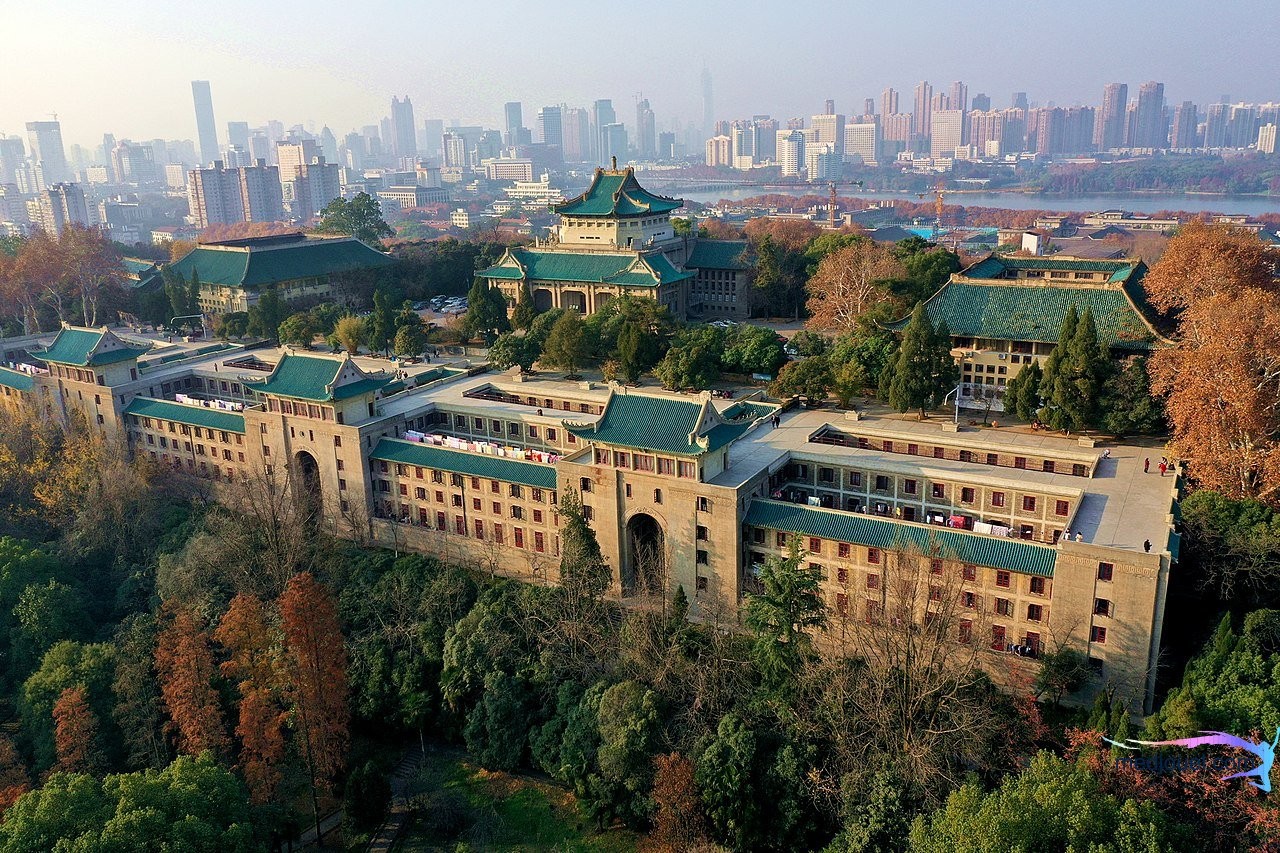
Wuhan University, located in Wuhan, Hubei Province, China, stands as one of the country's most prestigious and influential institutions of higher learning. Founded in 1923, it boasts a rich history and a commitment to academic excellence, research innovation, and cultural exchange. With its comprehensive range of disciplines, vibrant campus life, and global outreach, Wuhan University has emerged as a beacon of intellectual pursuit and cultural diversity.
Wuhan University traces its roots back to Ziqiang Institute, established during the late Qing Dynasty. Its early years were marked by a struggle for survival amid political turmoil and social change. Throughout the 20th century, the university underwent numerous transformations, experiencing both periods of growth and setbacks, including closures and relocations during wartime. However, its resilience and commitment to education remained steadfast, eventually leading to its evolution into the esteemed institution it is today.
Wuhan University is renowned for its comprehensive academic programs spanning various study in medicine. The university comprises multiple schools and colleges dedicated to specific disciplines, each offering undergraduate, graduate, and doctoral programs designed to cultivate scholarly inquiry, critical thinking, and practical skills.
At the forefront of scientific discovery and technological advancement, Wuhan University is a hub of research and innovation in medical studies. Its faculty members and research centres are engaged in groundbreaking studies across a wide array of disciplines in medicine, addressing pressing global challenges and advancing knowledge. Through collaborative partnerships with industry, government, and academia, the university endeavours to translate medical research findings into real-world solutions that benefit society.
The campus of Wuhan University is not merely a place of academic pursuit but also a vibrant center of cultural, social, and recreational activities. Students have access to a wealth of resources and facilities, including state-of-the-art laboratories, libraries, sports complexes, and student organizations, It also have 8000 bed hospital for clinical experience, rotation and training for medical students.
Looking ahead, Wuhan University is poised to build upon its rich heritage and academic legacy, embracing the opportunities and challenges of the 21st century. With a steadfast commitment to excellence, innovation, and social responsibility, the university aspires to shape future generations of leaders, scholars, and global citizens who are equipped to address the complex challenges facing our world and contribute meaningfully to its advancement and prosperity.
Wuhan University stands as a shining beacon of academic excellence, research innovation, and cultural diversity in China and beyond. With its storied history, vibrant campus life, and unwavering commitment to excellence, the university continues to inspire, educate, and empower individuals to realize their fullest potential and make a positive impact on the world.
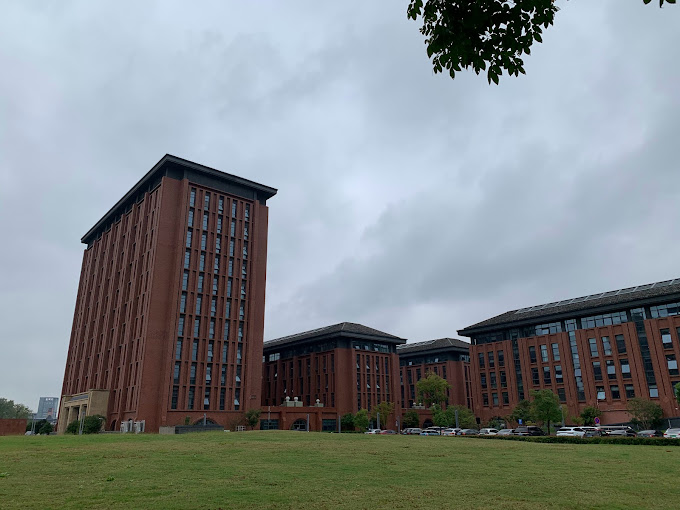
Zhejiang University (ZJU), located in Hangzhou, Zhejiang Province, China, stands as one of China's oldest and most prestigious institutions of higher learning. With a rich history dating back to its founding in 1897 as Qiushi Academy, Zhejiang University has evolved into a comprehensive research university renowned for its academic excellence, innovative research, and commitment to societal development. This essay delves into the university's history, academic structure, research endeavors, international collaborations, and its significant contributions to education and society.
Zhejiang University traces its roots to the late Qing Dynasty, initially established as Qiushi Academy by the Qing Emperor Guangxu. It was one of the earliest modern institutions of higher learning in China, aimed at fostering intellectuals capable of contributing to the nation's development. Over the decades, the institution underwent several transformations, mergers, and expansions, eventually emerging as Zhejiang University in 1928.
Zhejiang University encompasses a diverse array of academic disciplines, organized into various faculties, schools, and departments along with medical studies. Its academic structure reflects its commitment to multidisciplinary collaboration, fostering innovation and excellence across a broad spectrum of medical fields.
The university offers undergraduate, graduate, and doctoral programs across disciplines in medicinal studies. It boasts a comprehensive range of academic offerings designed to meet the evolving needs of society and industry, equipping students with the knowledge, skills, and perspectives necessary to thrive in a rapidly changing world.
Zhejiang University's commitment to academic excellence is underscored by its distinguished faculty, comprised of renowned scholars, researchers, and educators dedicated to pushing the boundaries of knowledge and inspiring the next generation of leaders and innovators.
Research lies at the heart of Zhejiang University's mission, driving innovation, discovery, and societal impact. The university maintains a robust research infrastructure, fostering interdisciplinary collaboration and providing state-of-the-art facilities and resources to support cutting-edge inquiry across various domains. The university maintains 3200 bed hospital for clinical training to its students for medical excellence.
Zhejiang University’s research endeavours span a wide spectrum of medical disciplines, from fundamental scientific inquiry to applied research addressing real-world challenges. Its research institutes, centres, and laboratories are at the forefront of innovation, exploring solutions to pressing global issues in healthcare and medicine.
The university actively cultivates partnerships with industry, government, and international collaborators, facilitating knowledge transfer, technology commercialization, and the translation of medical research findings into tangible societal benefits. Through strategic alliances and collaborative initiatives, Zhejiang University seeks to amplify its impact on local, national, and global scales, driving progress and prosperity through innovation and medical discovery.
Zhejiang University is committed to fostering international collaboration and global engagement, recognizing the importance of cross-cultural exchange and cooperation in addressing shared challenges and advancing common goals. The university maintains partnerships with leading institutions worldwide, facilitating student exchanges, joint research projects, and academic cooperation initiatives.
Through its international programs and initiatives, ZJU promotes intercultural understanding, academic exchange, and collaborative research, preparing students to thrive in an increasingly interconnected and interdependent world. Its global perspective informs its academic offerings, research priorities, and institutional strategies, positioning Zhejiang University as a hub of international education, research, and innovation.
Zhejiang University stands as a testament to China's enduring commitment to education, innovation, and progress. From its humble beginnings as Qiushi Academy to its current status as a world-class research university, ZJU has remained steadfast in its pursuit of excellence, shaping minds, advancing knowledge, and serving as a catalyst for positive change. As it continues to evolve and adapt to the challenges and opportunities of the 21st century, Zhejiang University remains dedicated to its founding principles of wisdom, integrity, and service, embodying the spirit of academic excellence and societal responsibility.
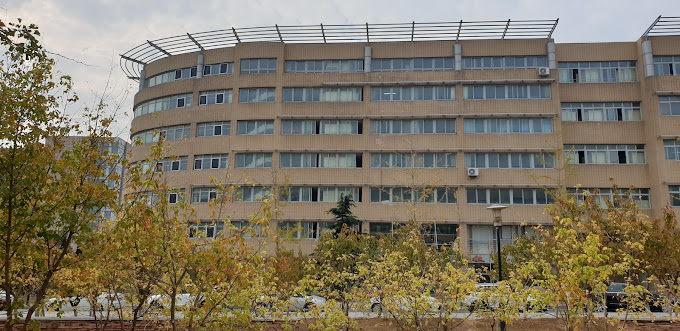
Dalian Medical University (DMU), located in the coastal city of Dalian in Liaoning Province, China, stands as a prominent institution renowned for its dedication to medical education, research, and healthcare services. Established in 1947 as Guandong Medical College, DMU has evolved into a comprehensive medical university with a rich history and a commitment to excellence in healthcare and medical sciences.
Dalian Medical University’s journey traces back to its founding as Guandong Medical College during the post-World War II era. Over the decades, it has undergone several transformations, including its relocation to Dalian in 1949 and subsequent name changes before finally becoming Dalian Medical University in 1994. The university's history reflects China's commitment to medical education and healthcare advancement.
Dalian Medical University offers a wide array of undergraduate, graduate, and doctoral programs across various disciplines within medicine and healthcare. These include Clinical Medicine, Stomatology, Pharmacy, Nursing, Public Health, Medical Imaging, Medical Laboratory Science, and more. The university continually updates its curriculum to integrate modern medical practices, technologies, and research findings.
Research is a cornerstone of Dalian Medical University 's identity, with significant emphasis placed on scientific inquiry and innovation. The university houses numerous research institutes and centers focusing on diverse areas such as cancer research, cardiovascular diseases, traditional Chinese medicine, and medical informatics. Faculty members and students actively engage in collaborative research projects, contributing to advancements in medical knowledge and technology.
Dalian Medical University maintains partnerships and collaborations with esteemed universities, research institutions, and healthcare organizations worldwide. These collaborations facilitate academic exchanges, joint research initiatives, and student exchange programs, fostering a global perspective among faculty and students while promoting cross-cultural understanding and cooperation.
Dalian Medical University is committed to producing highly skilled healthcare professionals equipped with both theoretical knowledge and practical skills. The university employs modern teaching methodologies, state-of-the-art facilities, and clinical training opportunities to ensure students receive comprehensive and hands-on medical education. Clinical rotations in their 6000-bed hospital and affiliated hospitals enable students to gain real-world experience and develop clinical competence under the guidance of experienced medical professionals.
Dalian Medical University operates several affiliated hospitals and medical institutions, providing high-quality healthcare services to the local community and beyond. These hospitals serve as training grounds for medical students, residents, and interns, offering a diverse range of clinical specialties and medical services. Through these clinical facilities, DMU contributes to healthcare delivery, disease prevention, and health promotion initiatives.
Dalian Medical University boasts a diverse and dynamic community comprising faculty, researchers, and students from various backgrounds and cultures. Faculty members are renowned experts in their respective fields, dedicated to teaching, research, and mentorship. Meanwhile, students benefit from a vibrant campus life enriched with academic activities, extracurricular events, and opportunities for personal and professional growth.
Dalian Medical University stands as a distinguished institution at the forefront of medical education, research, and healthcare in China and beyond. With its rich history, diverse academic programs, cutting-edge research initiatives, and unwavering commitment to excellence, DMU continues to play a pivotal role in shaping the future of medicine and improving health outcomes for individuals and communities worldwide. As it continues to evolve and innovate, DMU remains dedicated to its mission of nurturing future generations of healthcare professionals and advancing the frontiers of medical knowledge and practice.
Tongji University, situated in Shanghai, China, stands as one of the country's most prestigious and historic institutions of higher learning. Established in 1907, Tongji has evolved into a comprehensive university renowned for its academic excellence, innovative research, and global impact. This comprehensive overview provides insight into the university's history, academic programs, research initiatives, and its significance on both the national and international stages.
Tongji University traces its roots back to 1907 when it was founded as a medical school by German physicians in Shanghai. Originally named the German Medical School, it aimed to address the healthcare needs of the local community during a time of significant medical challenges. Over the years, the institution expanded its academic offerings and underwent several name changes before officially adopting the name Tongji University in 1927.
Tongji University operates across a diverse array of disciplines, offering undergraduate, graduate, and doctoral programs in medical studies. The university is committed to fostering interdisciplinary collaboration and providing students with a well-rounded medical education that prepares them for leadership roles in their medical fields. Tongji's academic programs emphasize both theoretical knowledge and practical skills, ensuring that graduates are equipped to tackle real-world challenges and contribute meaningfully to society.
Tongji University has garnered international recognition for its groundbreaking research and innovation across various disciplines. The university boasts state-of-the-art research facilities and laboratories, fostering an environment conducive to cutting-edge discovery and technological advancement. Research areas encompass sustainable development, urban planning, renewable energy, biomedicine, transportation engineering, and more.
Tongji University actively collaborates with academic institutions, industry partners, and research organizations worldwide to address global challenges and drive innovation. Through collaborative research projects and partnerships, faculty and students engage in interdisciplinary research initiatives that have 4443 bed hospital to provide state of the art hand on experience in clinical training and internships.
Tongji University places a strong emphasis on internationalization and global engagement, recognizing the importance of cross-cultural exchange and collaboration in today's interconnected world. The university has established partnerships and exchange programs with leading universities and institutions around the globe, facilitating student and faculty mobility, joint research initiatives, and academic collaboration.
Furthermore, Tongji University attracts a diverse student body and faculty from various cultural backgrounds, fostering a dynamic and inclusive learning environment that promotes cross-cultural understanding and dialogue. International students have the opportunity to immerse themselves in Chinese language and culture while pursuing their academic and professional goals.
Tongji's alumni network boasts accomplished individuals who have made significant contributions to their respective fields and communities, serving as ambassadors for the university's values and ethos. The university's reputation for producing outstanding graduates who excel in academia, industry, government, and the arts further solidifies its standing as a premier institution of higher education.
Tongji University stands as a beacon of academic excellence, innovation, and global engagement in China and beyond. With a rich history spanning over a century, the university continues to uphold its commitment to fostering intellectual curiosity, advancing knowledge, and addressing the complex challenges facing society. Through its diverse academic programs, cutting-edge research initiatives, and commitment to internationalization, Tongji University remains at the forefront of higher education, shaping the leaders and innovators of tomorrow.

Sun Yat-sen University, commonly known as SYSU or Zhongshan University, is a prestigious institution located in Guangzhou, Guangdong Province, China. Founded in 1924 by Dr. Sun Yat-sen, a revolutionary leader and the founding father of the Republic of China, the university has evolved into one of the most esteemed educational institutions in China and Asia. With a rich history, diverse academic offerings, and a commitment to excellence, Sun Yat-sen University stands as a beacon of higher education and research in China.
Sun Yat-sen University traces its origins to the formation of the Guangdong University of Medicine in 1924. Initially established to advance medical education and research, the university was later renamed to honor Dr. Sun Yat-sen, whose revolutionary ideals and contributions to modern China inspired its founding principles. Throughout its history, SYSU has played a pivotal role in shaping China's intellectual landscape and fostering a spirit of innovation and progress.
Sun Yat-sen University is renowned for its academic excellence and comprehensive range of medical disciplines. The university comprises multiple campuses, including the Guangzhou South Campus, Guangzhou North Campus, and Zhuhai Campus, each offering a diverse array of undergraduate, graduate, and doctoral programs in medicine studies. Sun Yat-sen University provides students with a holistic education that prepares them for leadership roles in an increasingly interconnected world.
At the heart of SYSU's mission is a commitment to research and innovation. The university boasts state-of-the-art laboratories, 2204 inpatient hospital for clinical experience, research centres, and interdisciplinary institutes dedicated to advancing knowledge and addressing the most pressing challenges facing society. From groundbreaking discoveries in biomedicine and in medicine studies, SYSU's research endeavours have earned international recognition and contributed to the global scientific community.
SYSU places great emphasis on international collaboration and academic exchange. The university has established partnerships with leading institutions worldwide, fostering cross-cultural dialogue, and facilitating joint research initiatives. Through student exchange programs, visiting scholar programs, and international conferences, SYSU promotes cultural diversity and global engagement, enriching the academic experience for students and scholars alike Sun Yat-sen University stands as a beacon of academic excellence, research innovation, and social responsibility in China and beyond. With a proud history, diverse academic offerings, and a commitment to fostering global citizenship, SYSU continues to inspire generations of students, scholars, and leaders to pursue knowledge, embrace diversity, and make meaningful contributions to society. As it looks towards the future, SYSU remains dedicated to its founding principles of innovation, integrity, and service, shaping the next chapter in China's rich intellectual tradition.

Shandong University (SDU), located in Jinan, the capital city of Shandong Province in China, stands as one of the country's key comprehensive universities with a rich history and profound academic influence. Established in 1901, it has evolved into a prominent institution renowned for its academic excellence, research contributions, and cultural heritage.
The roots of Shandong University trace back to the Imperial College of Shandong established during the Qing Dynasty. Over time, it underwent several transformations and reorganizations before becoming the modern Shandong University. Through its journey, it has weathered political upheavals, educational reforms, and societal changes, emerging stronger and more resilient.
Shandong University boasts a comprehensive academic structure encompassing multiple disciplines across its various medical schools and medical departments. It offers undergraduate, graduate, and doctoral programs, catering to a diverse array of medical academic interests and career aspirations.
Shandong University is committed to fostering a vibrant research culture and promoting innovation across its campuses. It houses numerous research institutes, laboratories, and centers dedicated to advancing knowledge and addressing global challenges. Faculty members and students engage in cutting-edge research across disciplines, contributing to significant breakthroughs and innovations with real-world impact.
Recognizing the importance of global engagement, Shandong University actively cultivates partnerships and collaborations with institutions worldwide. Through academic exchanges, joint research projects, and student mobility programs, SDU fosters cross-cultural understanding and promotes international cooperation in education and research.
Shandong University boasts state-of-the-art infrastructure and modern facilities designed to support academic endeavours and enhance the overall learning experience. Its Qilu hospital boasts 4360 bed teaching hospital to its students for medical internship, clinical rotations and trainings. Its campuses feature well-equipped classrooms, libraries, research centres, recreational facilities, and student accommodation, providing a conducive environment for scholarship, research, and personal development.
Looking ahead, Shandong University remains committed to its mission of academic excellence, innovation, and global leadership. It aspires to further strengthen its position as a world-class institution of higher learning, fostering talent, advancing knowledge, and contributing to the betterment of society. With a proud legacy and a bold vision for the future, SDU continues to shape the future of education and research in China and beyond.
Shandong University stands as a beacon of academic excellence and cultural heritage, embodying a legacy of scholarship, innovation, and social responsibility. With its rich history, diverse academic programs, and commitment to global engagement, SDU continues to inspire generations of students, scholars, and leaders, shaping the future of education and research in China and the world.
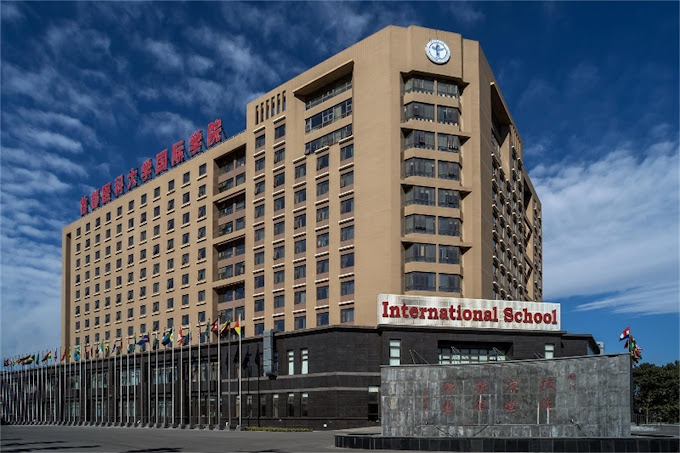
Capital Medical University (CMU) is one of China's premier institutions dedicated to medical education, research, and healthcare services. Established in 1960, it is situated in Beijing, the capital city of China, hence its name. With a rich history and a commitment to excellence in medical training and innovation, CMU has become a cornerstone in China's healthcare system and a renowned institution globally.
The roots of Capital Medical University trace back to the Beijing Second Medical College, founded in 1960. Over the decades, it underwent several transformations and mergers, eventually evolving into the Capital Medical University in 2004. The university's growth mirrors the development of China's healthcare system, adapting to changes and advancements in medical science and education.
Capital Medical University offers a comprehensive array of academic programs covering undergraduate, graduate, and doctoral studies. The university is organized into multiple schools and departments, each specializing in various branches of medicine and related disciplines. These include:
These schools and departments provide a diverse range of programs including medicine, nursing, public health, biomedical engineering, stomatology, and Chinese medicine, among others.
Capital Medical University is committed to advancing medical research and innovation. It has established numerous research centers and institutes focusing on various fields such as molecular medicine, clinical medicine, public health, and biomedical engineering. The university encourages interdisciplinary collaboration and partnerships with other institutions and industries to foster innovation and address healthcare challenges.
CMU's research endeavors have led to significant breakthroughs in areas such as cancer treatment, infectious diseases, neurology, and medical technology. The university's research output contributes to the global body of knowledge in medicine and healthcare, enhancing its reputation as a leading research institution.
Capital Medical University actively engages in international collaboration and exchange programs with academic institutions, research organizations, and healthcare providers worldwide. These partnerships facilitate academic exchange, joint research projects, and the sharing of knowledge and resources. CMU also welcomes international students and scholars, offering programs and support services tailored to their needs.
As a leading medical institution, Capital Medical University operates 16555 bed hospital with 37 teaching hospital and several affiliated hospitals and healthcare facilities in Beijing. These hospitals serve as teaching hospitals for medical students and provide high-quality healthcare services to patients. The university's clinical faculty members are renowned experts in their respective fields, offering specialized care and contributing to medical education and research.
Capital Medical University stands as a beacon of excellence in medical education, research, and healthcare in China and beyond. With its rich history, academic prowess, commitment to innovation, and dedication to serving humanity, CMU remains at the forefront of advancing medical science and improving health outcomes for individuals and communities worldwide.
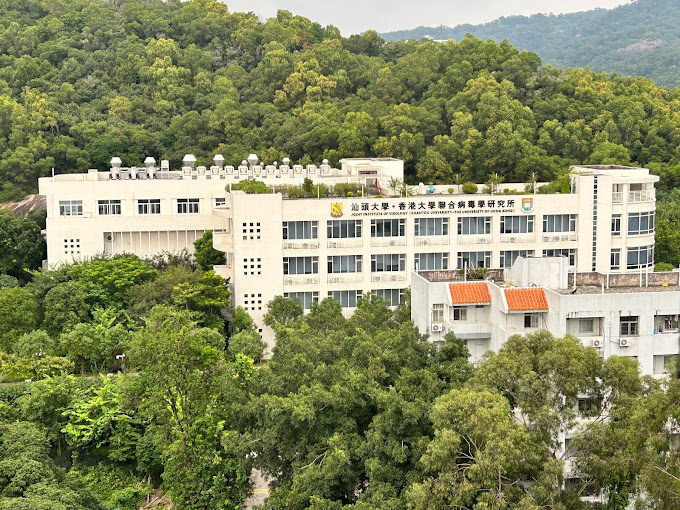
Shantou University (STU) is a comprehensive university located in Shantou City, Guangdong Province, China. Established in 1981 with the approval of the State Council, STU is one of the first universities permitted to restore undergraduate programs and one of the pioneer institutions in China's reform and opening up initiatives.
Shantou University traces its origins to the generosity of Mr. Li Ka-shing, a Hong Kong philanthropist and businessman, who donated substantial funds to establish the university. His vision was to contribute to the development of higher education in China and foster intellectual growth and innovation in the region.
Shantou University has developed into a comprehensive institution with a diverse array of disciplines and programs spanning undergraduate, graduate, and doctoral levels. The university consists of several faculties and schools covering field in medical and health sciences: comprising medicine, nursing, public health, and related fields.
Shantou University places a strong emphasis on both teaching and medical research, striving for excellence in academic endeavors. The university is home to numerous medical research centres, institutes, and laboratories where faculty and students engage in cutting-edge research across a wide spectrum of disciplines. Research output includes contributions to scientific advancement, technological innovation, social development, and cultural enrichment.
Recognizing the importance of internationalization in the modern academic landscape, Shantou University has actively pursued collaborations and partnerships with institutions and organizations worldwide. These collaborations facilitate student and faculty exchanges, joint research initiatives, and the sharing of knowledge and resources across borders. The university also attracts a diverse student body, including international students seeking quality education in China.
STU boasts a modern and well-equipped campus designed to provide a conducive environment for learning, research, and personal growth. The campus features state-of-the-art facilities, including classrooms, laboratories, libraries, sports complexes, student dormitories, and recreational amenities. The university encourages extracurricular activities and offers various student clubs, organizations, and cultural events to enrich campus life and foster a sense of community.
Shantou University is committed to excellence in all its endeavors, striving to uphold the highest standards of academic integrity, intellectual inquiry, and ethical conduct. The university places a strong emphasis on holistic education, aiming to nurture well-rounded individuals with a passion for learning, a sense of social responsibility, and the skills to thrive in an increasingly complex and interconnected world.
Shantou University stands as a beacon of academic excellence and intellectual endeavor in China and beyond. Through its commitment to education, research, and innovation, the university seeks to make meaningful contributions to society and empower future generations of leaders, scholars, and global citizens. With its rich history, diverse academic offerings, and unwavering dedication to excellence, STU continues to inspire and shape the minds of students and scholars alike, forging a brighter future for generations to come.